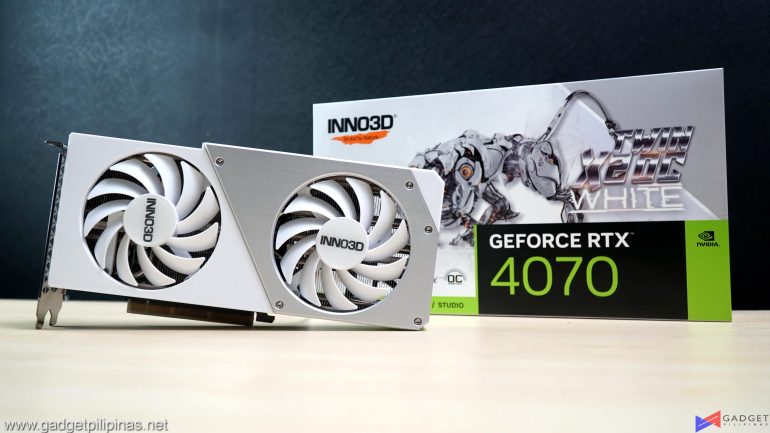The Nvidia GeForce RTX 40 series and its partner cards have been out in the market for quite a while with the Nvidia RTX 4060 GPU being the latest release from Nvidia. It’s quite rare for a brand to release a new variant of an already released GPU tier and that’s what we have with the Inno3D RTX 4070 Twin X2 OC White Stealth Graphics Card. It shares a similar DNA with the existing RTX 40 series Twin X2 OC line but with a twist on its PCI-E power connector placement. So let’s see what makes the new Inno3D RTX 4070 Twin X2 OC White Stealth “stealthy.”
Nvidia Ada Lovelace Architecture
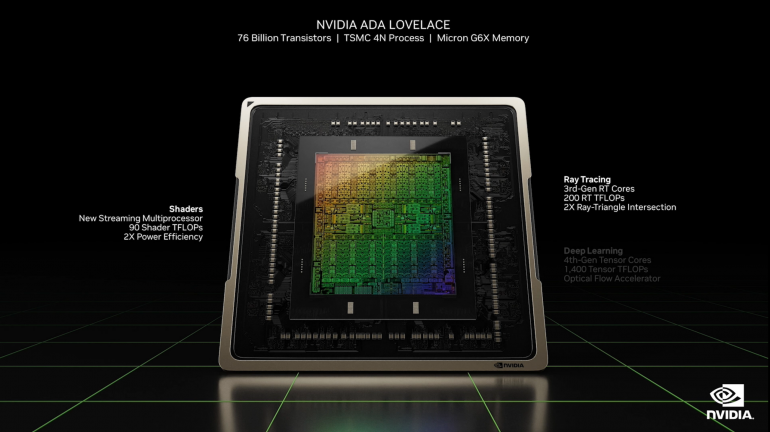
Nvidia continues to double down on its proven and tested formula with the debut of the Nvidia Ada Lovelace architecture featuring 76 Billion Transistors. Nvidia has moved from Samsung 8N to TSMC’s 4N process, resulting in much bigger performance gains and slighter higher pricing as TSMC recently hiked up its prices. The new Ada Lovelace features 3rd Generation RT Cores at 200 RT TFLOPs and 4th Gen Tensor Cores for 1,4000 TFLOPs as well as a new streaming multiprocessor with up to 2x power efficiency. Moreover, Ada Lovelace also brings in new features exclusive to the RTX 40 series graphics card such as DLSS 3, AV1 Encoding, and Shader Execution Reordering.
Shader Execution Reordering
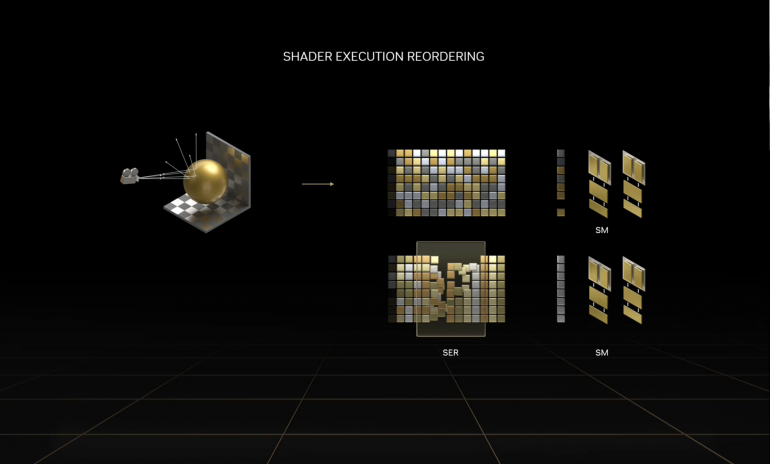
Shader Execution Reodering largely contributes to the performance gains of the RTX 40 series GPUs thanks to the more efficient usage of the shaders. SER is a scheduling system that reorders shading work on the fly for better execution efficiency, especially on ray-traced workloads. Think hyperthreading plus thread director but for GPUs particularly the RTX 40 series where the rays are reordered so that the ones that are running on the same program or similar are grouped together resulting in the shader working consistently instead of waiting on each other.
SER is an NVAPI extension meaning that developers would have to enable it on their games. We should expect SER to be heavily and quickly adopted especially in games where there are already Nvidia features enabled such as Reflex, RTX, and DLSS.
Nvidia DLSS 3
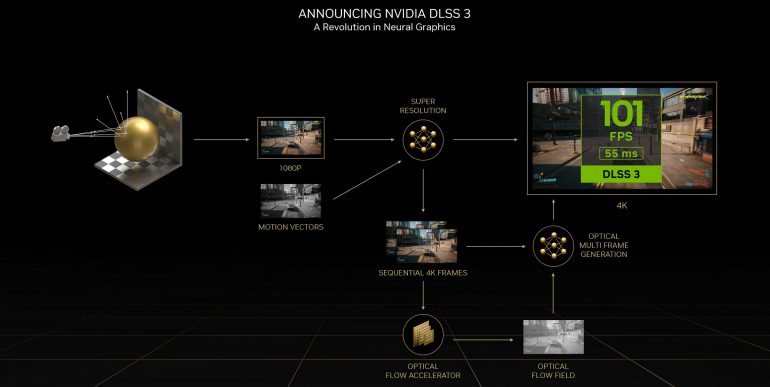
DLSS 3 uses the 4th Gen Tensor Cores and the Optical Flow Accelerator of the RTX 40 series to improve overall performance using AI-generated frames. In addition to already upscaling existing frames like DLSS 2, DLSS 3 generates intermediate frames in your game aka inserting AI-generated frames to improve performance. The RTX 40 series GPU will analyze two in-game frames and generate an optical flow field, closely looking at all elements in the game and using the information gathered to construct a frame in between. Additionally, DLSS 3 incorporates Nvidia Reflex ultra-low-latency solution making your games way more responsive and providing more frames.
DLSS 3 can be used by older Nvidia RTX graphics cards but won’t be able to fully maximize the feature as the biggest improvement of the technology, Frame Generation, is exclusive to the RTX 40 series graphics cards.
Nvidia RTX 40 Series Specifications
| RTX 40 SERIES SPECS | RTX 4090 | RTX 4080 | RTX 4070 Ti | RTX 4070 | RTX 4060 Ti | RTX 4060 |
|---|---|---|---|---|---|---|
| Cores | 16,384 | 9,728 | 7,680 | 5,888 | 4,352 | 3,072 |
| Tensor Cores | 512 | 304 | 240 | 184 | 136 | 96 |
| RT Cores | 128 | 76 | 60 | 46 | 34 | 24 |
| Boost Clock (GHz) | 2.52 | 2.51 | 2.61 | 2.47 | 2.53 | 2.46 |
| Base Clock (GHz) | 2.23 | 2.21 | 2.31 | 1.92 | 2.31 | 1,83 |
| Memory Config | 24GB GDDR6X | 16GB GDDR6X | 12GB GDDR6X | 12GB GDDR6X | 8GB/16GB GDDR6 | 8GB GDDR6 |
| Memory Interface | 384-bit | 256-bit | 192-bit | 192-bit | 128-bit | 128-bit |
| Graphics Power | 450W | 320W | 285W | 200W | 160W | 115W |
| Min Required PSU | 850W | 750W | 700W | 650W | 550W | 550W |
| Price | Php 112,300 | Php 84,200 | Php 63,200 | Php 40,590 | Php 27,530 | Php 20,630 |
The Nvidia GeForce RTX 4070 sports an average of 24% fewer cores than the RTX 4070 Ti and with a significantly lower base clock of only 1,920 Mhz, making it the lowest-clocked RTX 40 GPU. It does, however, sport the same 12GB GDDR6X and 192-bit memory configuration. The 24% lower core count translates to a much lower TGP of only 200 watts and a 35 percent cheaper price tag of only $499 (Php 40,590) albeit it’s $100 more than the launch price of the GeForce RTX 3070.
Inno3D RTX 4070 Twin X2 OC White Stealth – A Closer Look
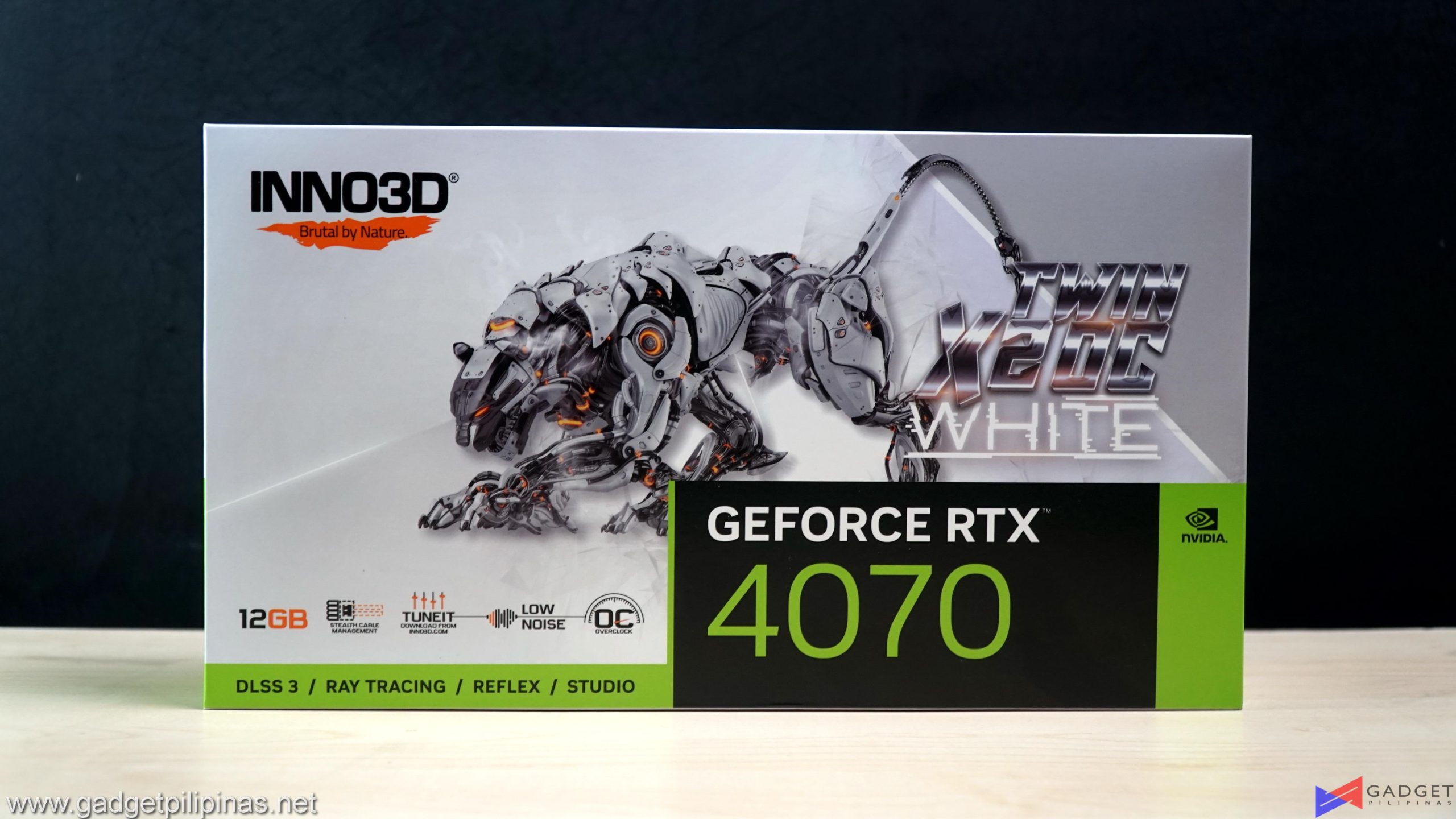
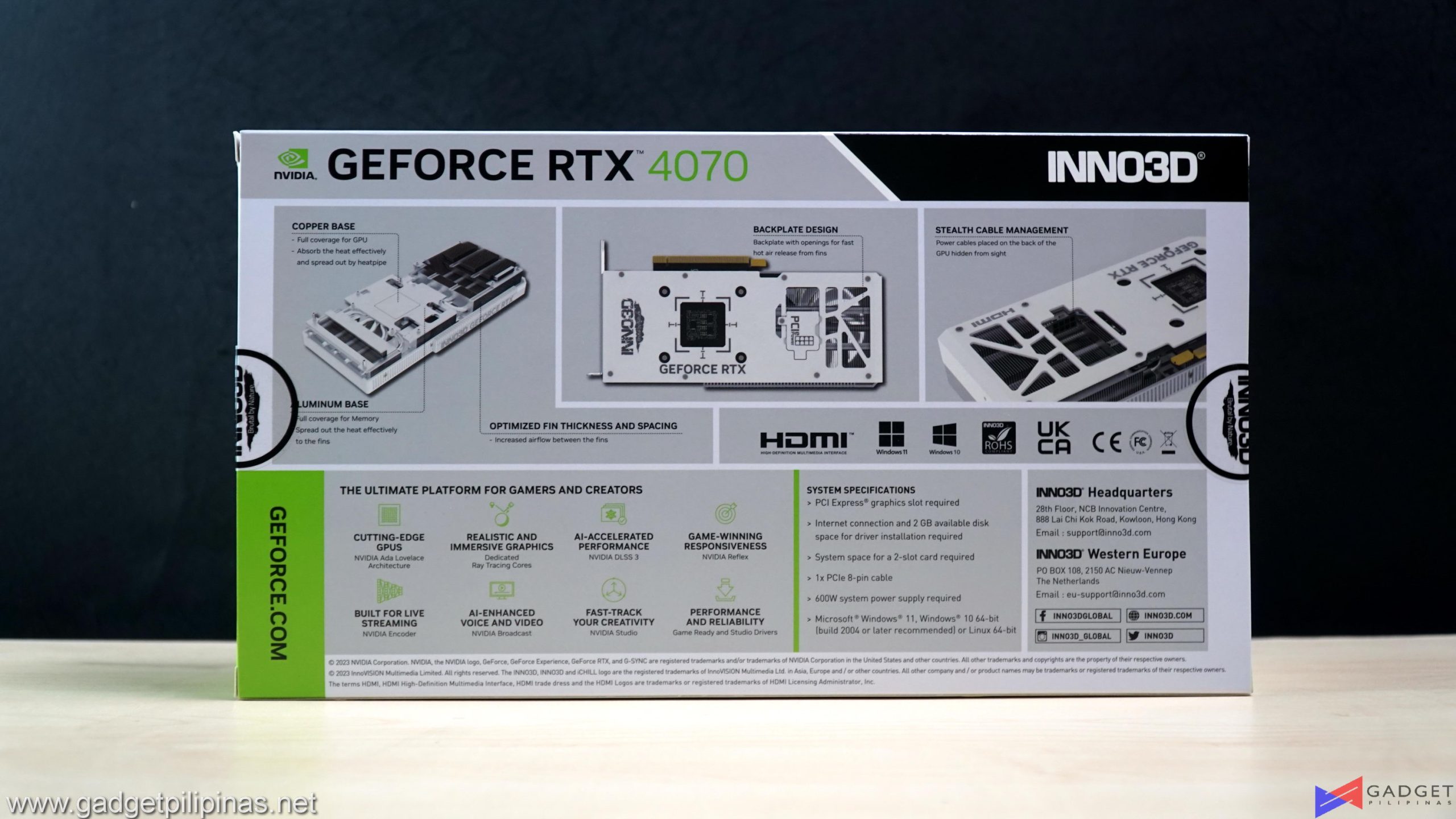
The Inno3D RTX 4070 Twin X2 OC White Stealth has the exact front packaging design as the rest of the Twin X2 series cards except for the small “stealth” logo placed near the 12GB marker. The back shows the layout and highlight features that make the it a “Stealth” GPU.
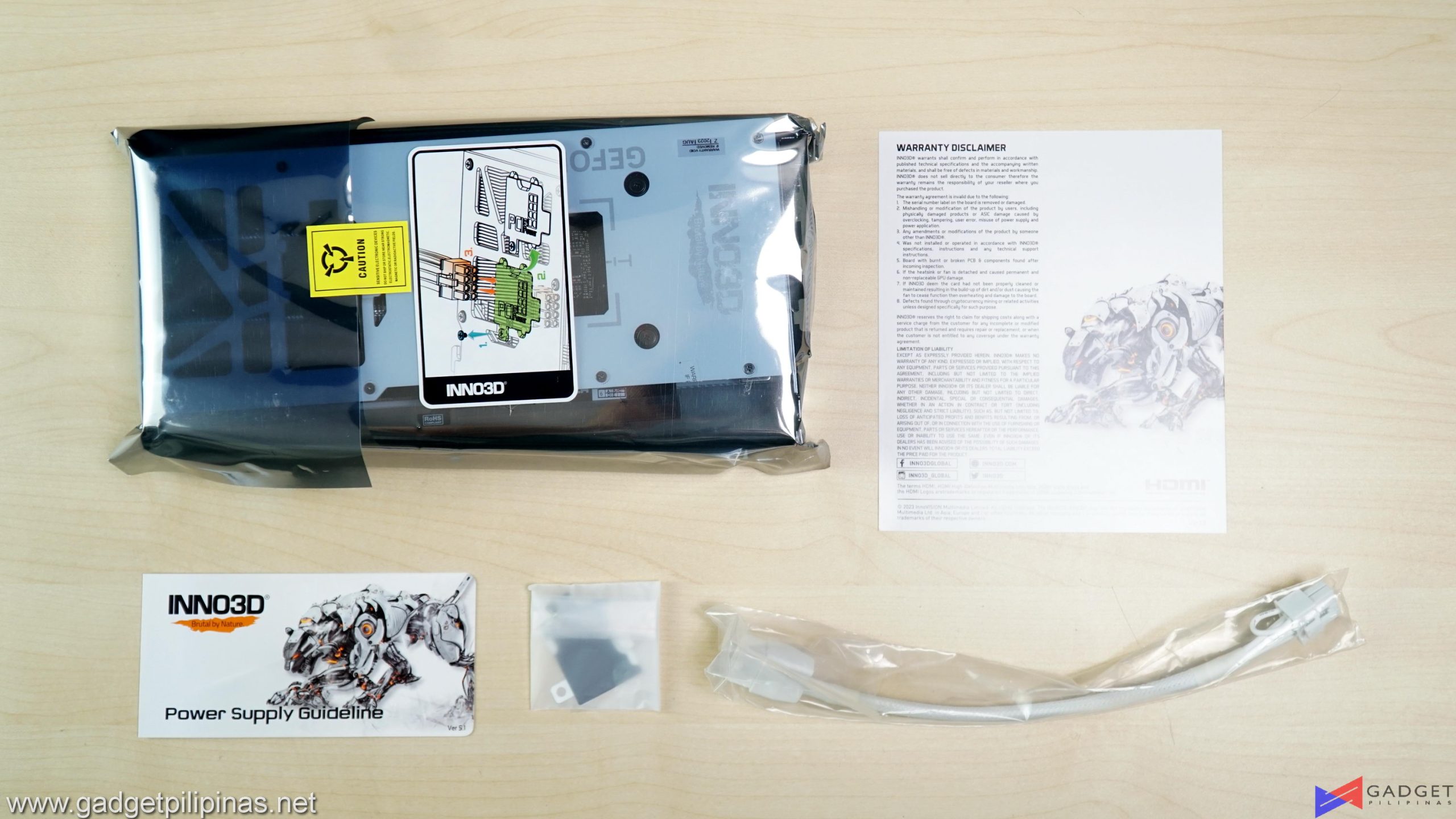
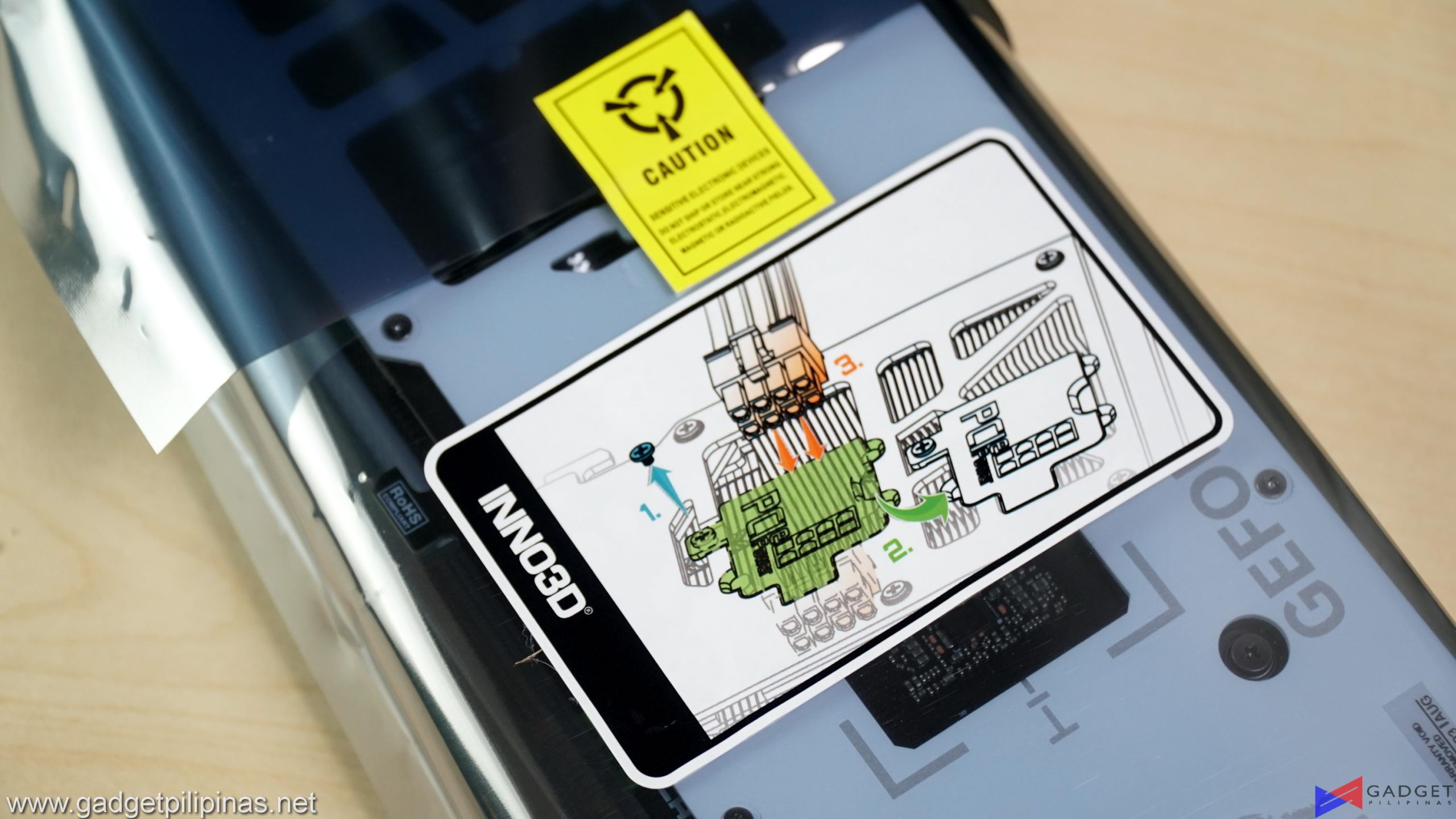
Inno3D has finally removed its “Cryptoming” warning sticker in place of a diagram showing how to install the 8-pin PCI-E power connector and plate of the RTX 4070 Twin X2 OC Stealth. Packaging-wise, you have the usually basic Inno3D manual and PSU guide papers but the Stealth card comes with a white 8-pin PCI-E extension cable and cover plate.
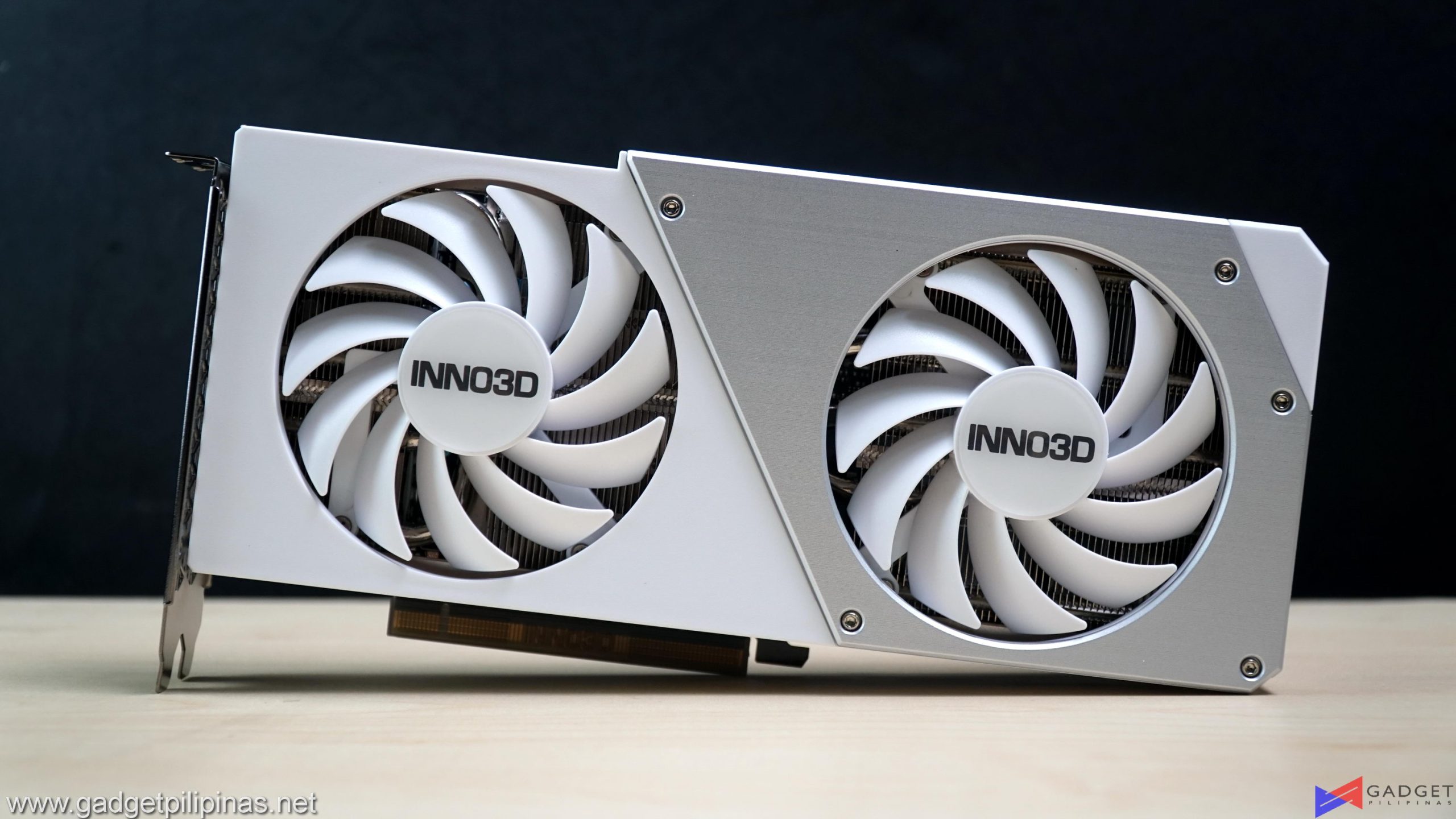
The Inno3D RTX 4070 Twin X2 OC White Stealth sports the signature two-tone design of the Twin X2 series. The white finish makes the gunmetal side look lighter compared to the back variant. Apart from the color change there’s no difference on the shroud compared to the non-stealth variants.
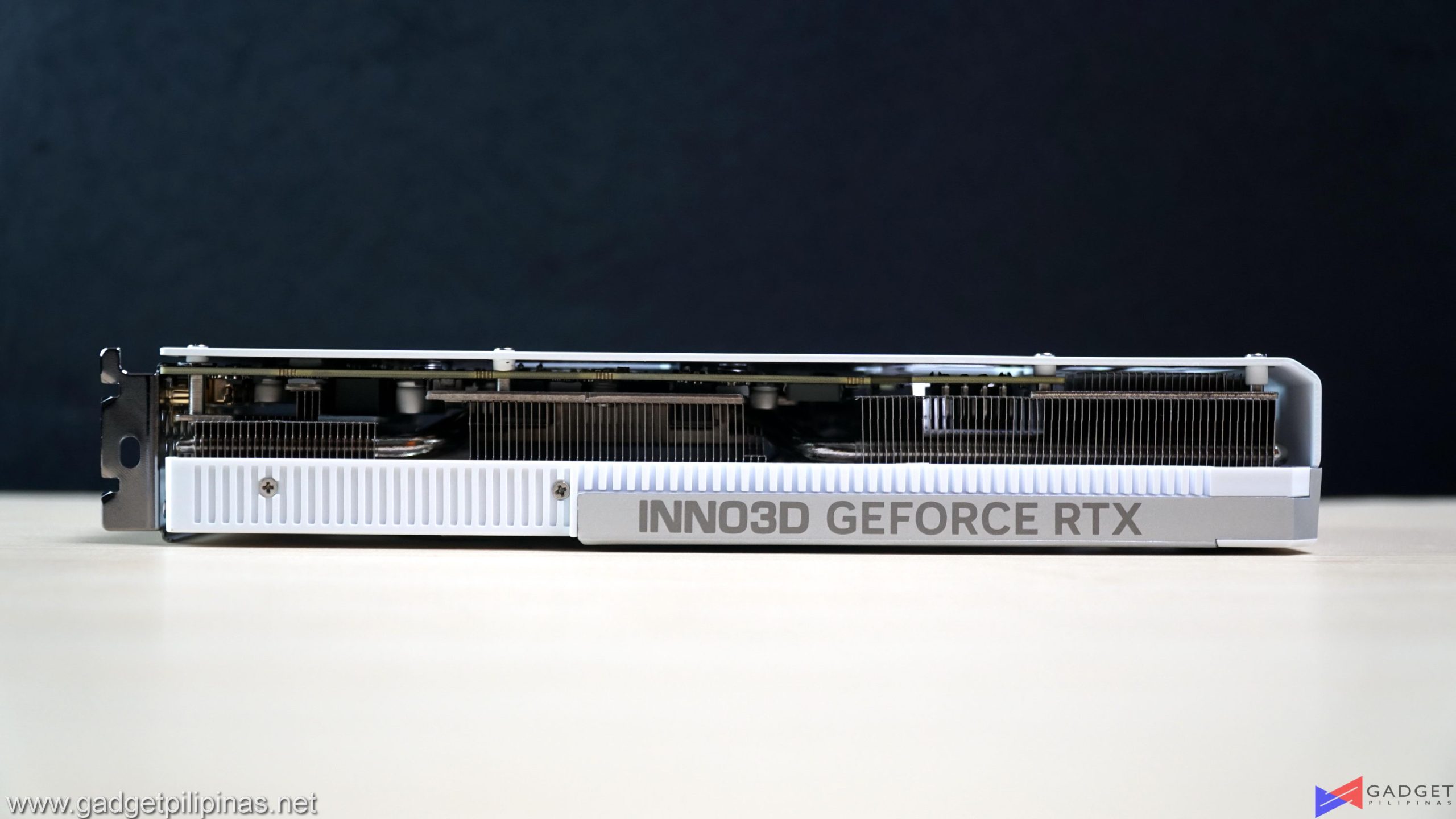
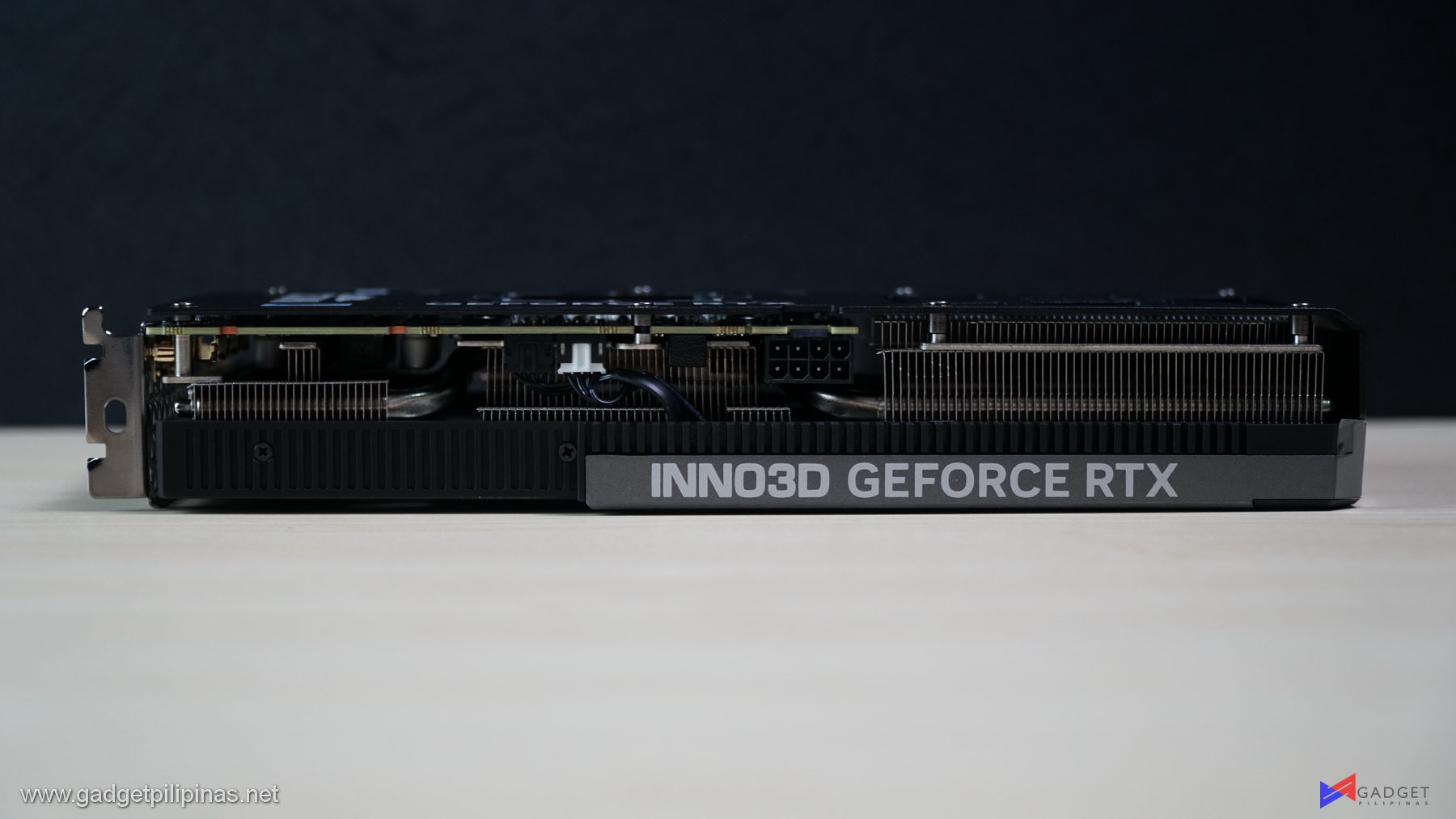
The side shows the first tell-tale difference between the stealth and non-stealth Twin X2 series GPUs. As the name suggests, the 8-Pin PCI-E connector is stealthily tucked away to give a cleaner look to the graphics card and to some extent, the whole PC build. The slot where the 8-pin PCI-E connector is supposed to be is empty – albeit weird for some, it indeed makes the whole side profile of the GPU look a lot cleaner and slimmer.
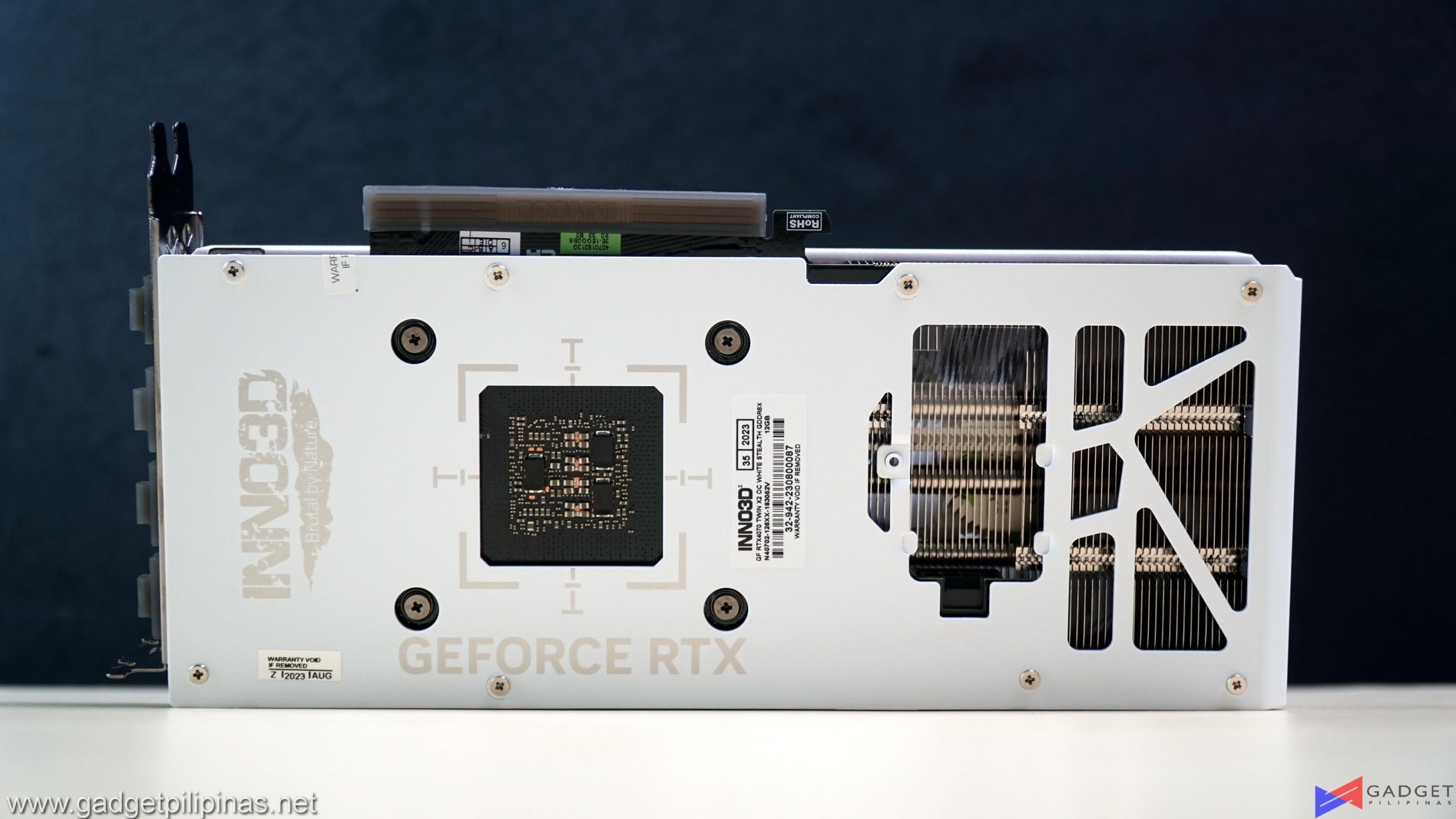
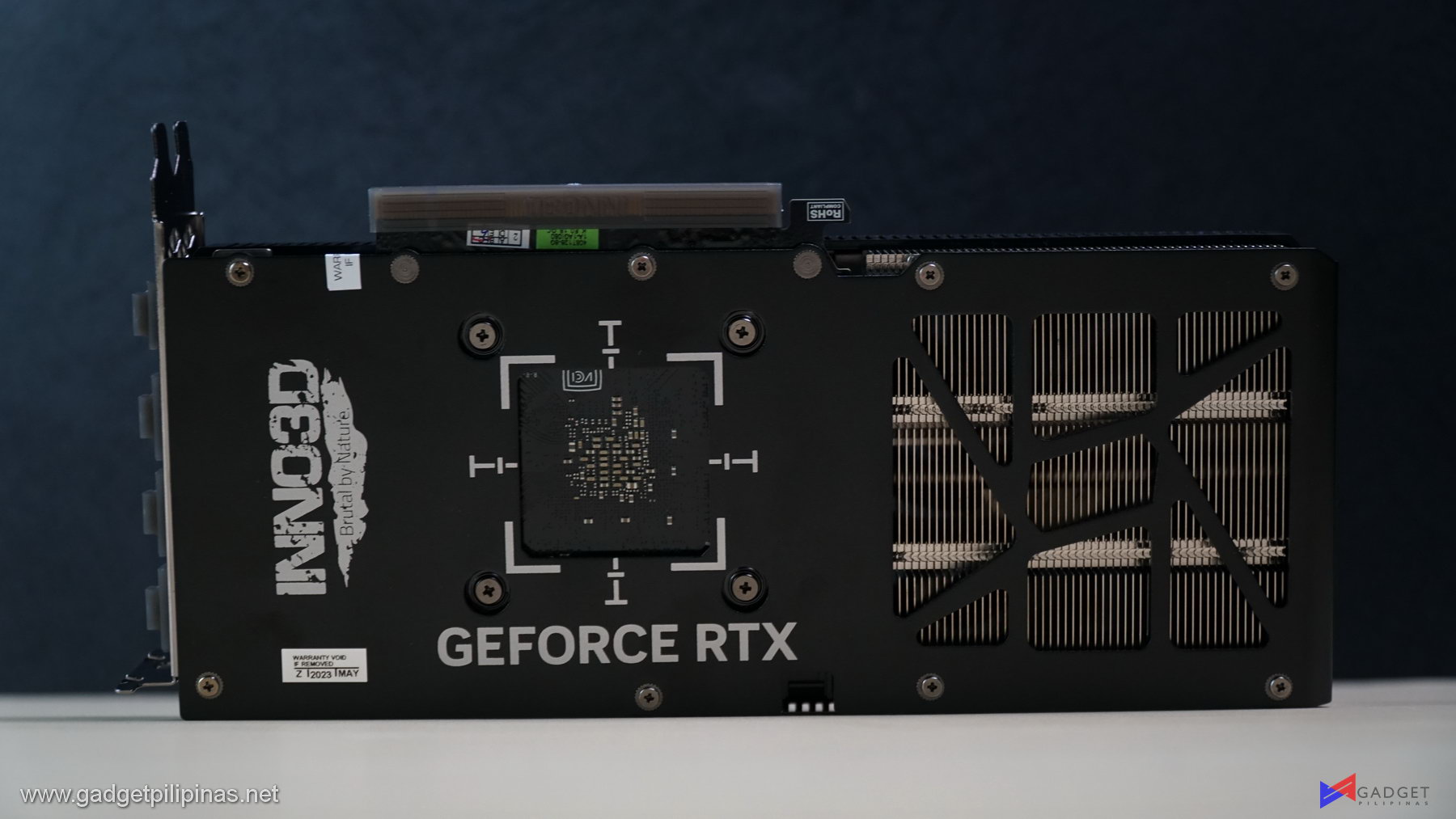
Moving to the back you can see the difference between the Stealth and non-stealth models as the cutout for the heatsink is significantly reduced to accommodate the hidden 8-pin PCI-E power connector. The airflow is further restricted as you plug in the cable, more so if you use the included cover plate.
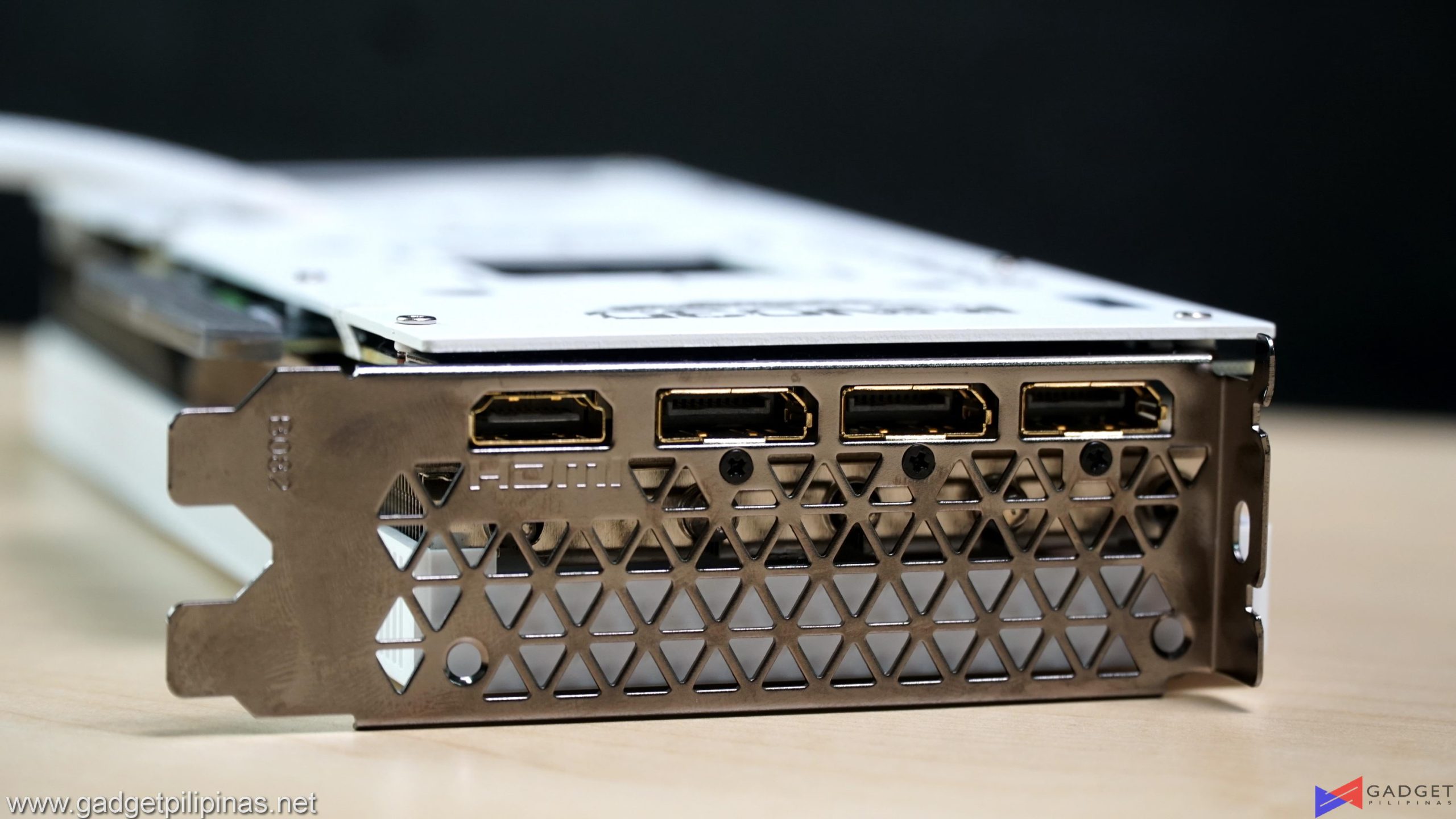
Port selection is nothing special and is the common configuration for modern graphics cards – one HDMI 2.1 port and three DisplayPort 1.4a ports.
STEALTH CABLE
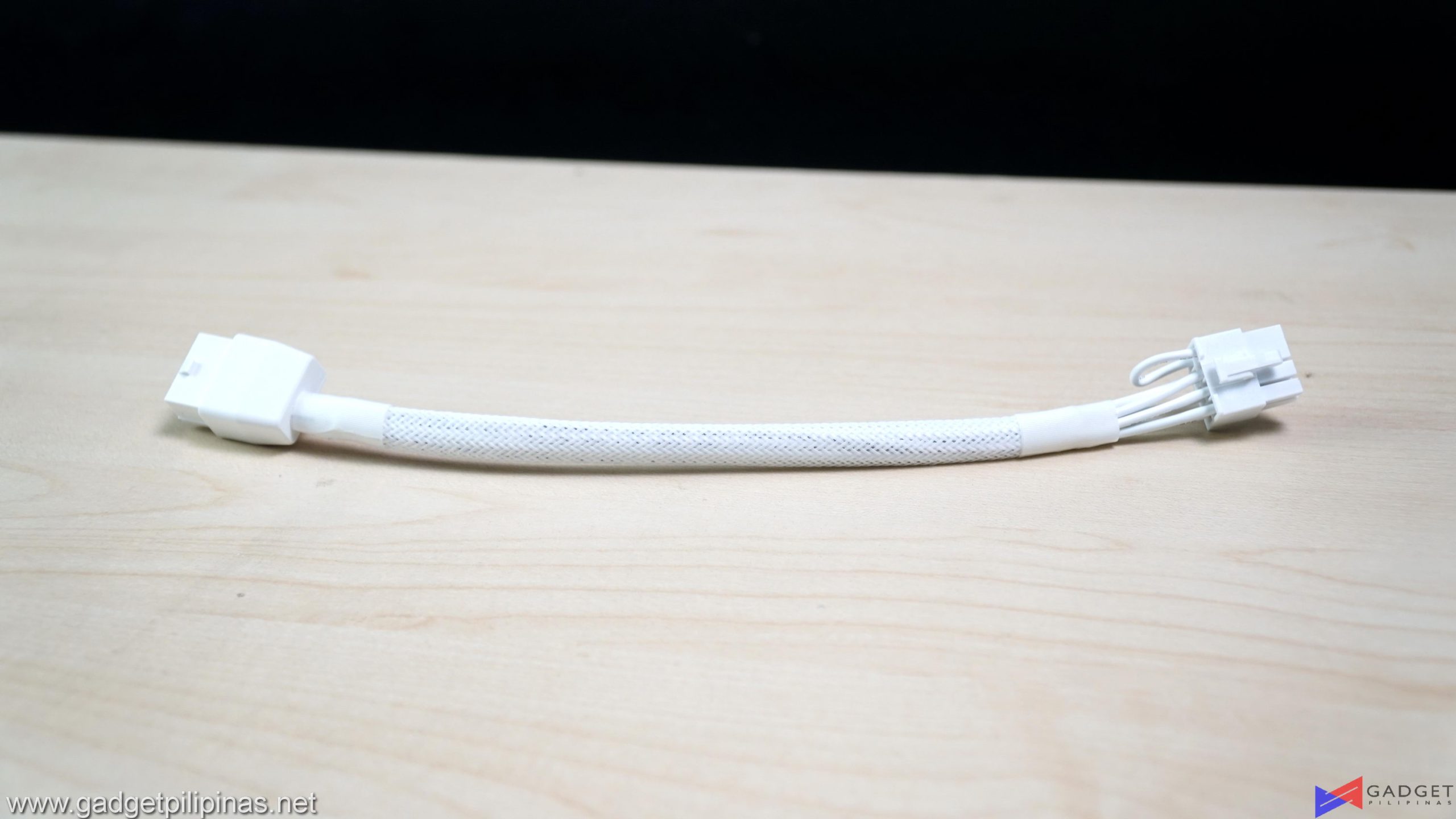
Inno3D Includes an 8-pin PCI-E extension cable out of the box. Inno3D went through the effort of matching the GPU’s color for a more well-rounded stealth look once installed.
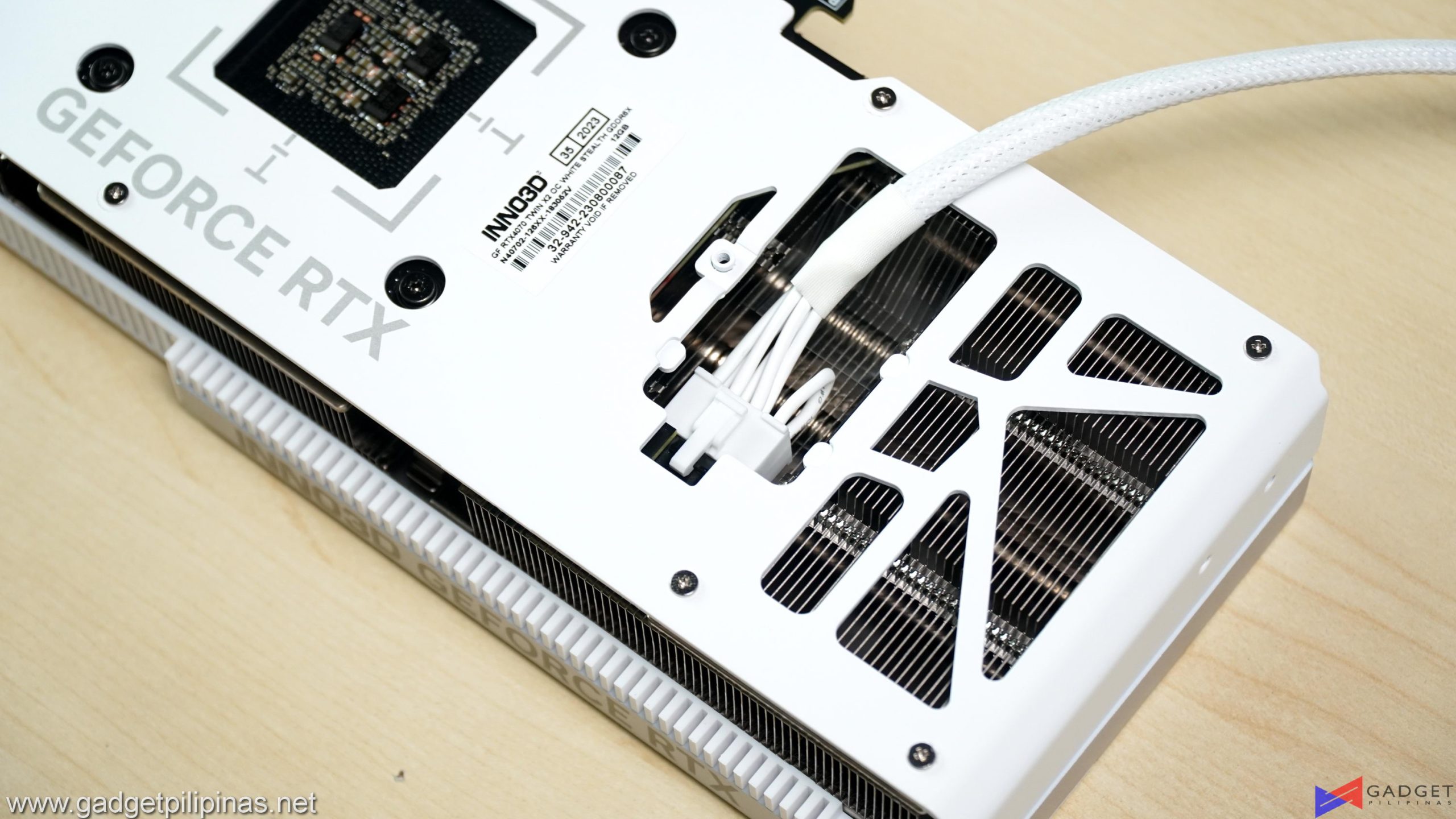
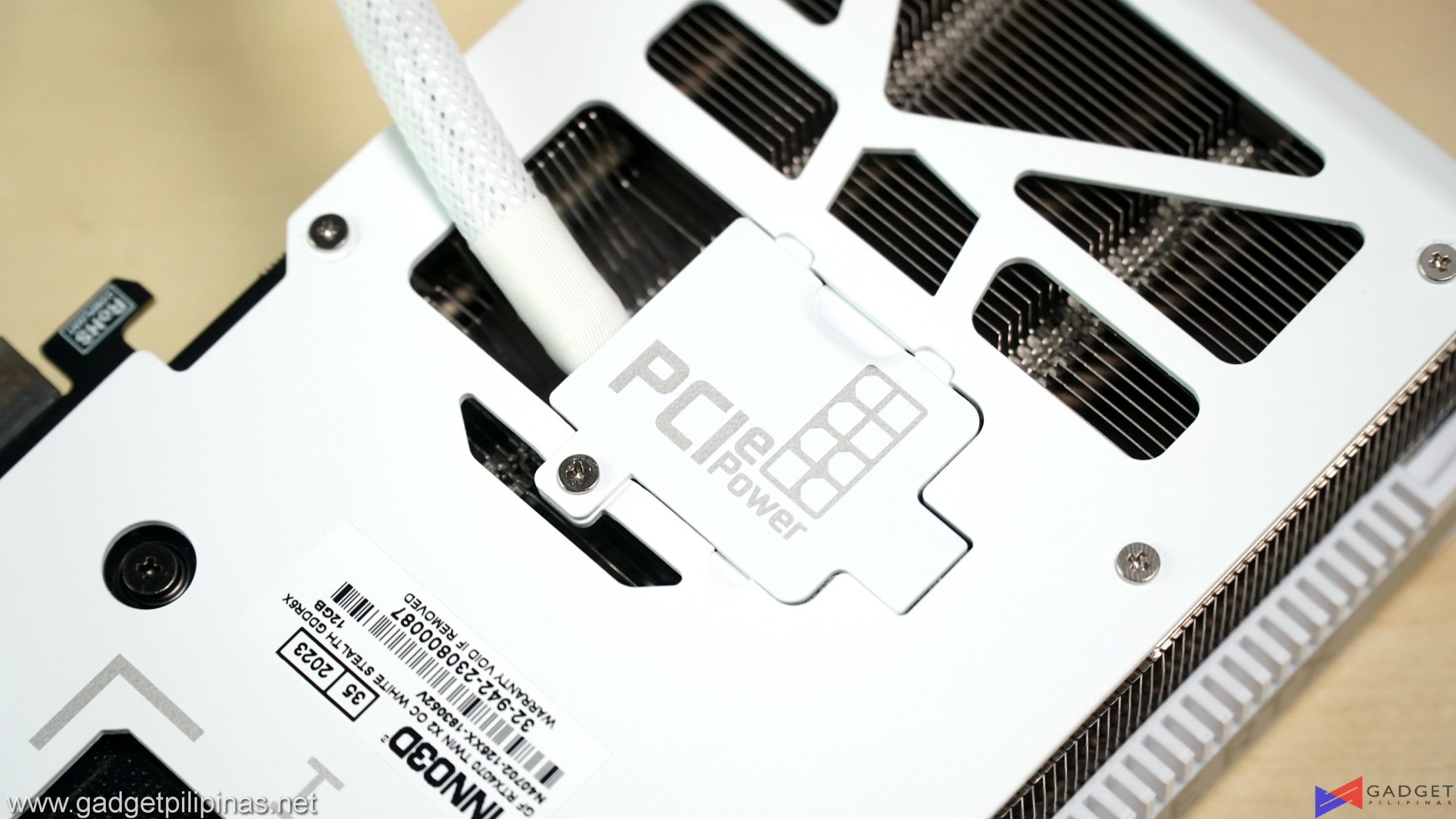
As mentioned earlier, the white color of the extension cable and the GPU match. Once connected, users have the option to use the PCI-E cover plate to make the cable protrude less. The cover plate is held on via a screw which makes it a double-edged sword for users wanting to use the plate. While it does hide and secure the cable for a more seamless look, users are hassled by the extra step of having to unscrew the plate should they need to remove the GPU for cleaning or troubleshooting purposes. Moving forward, we’d like to see a tool-less approach for easy access similar to the latch mechanisms used by M.2 SSDs on motherboards.
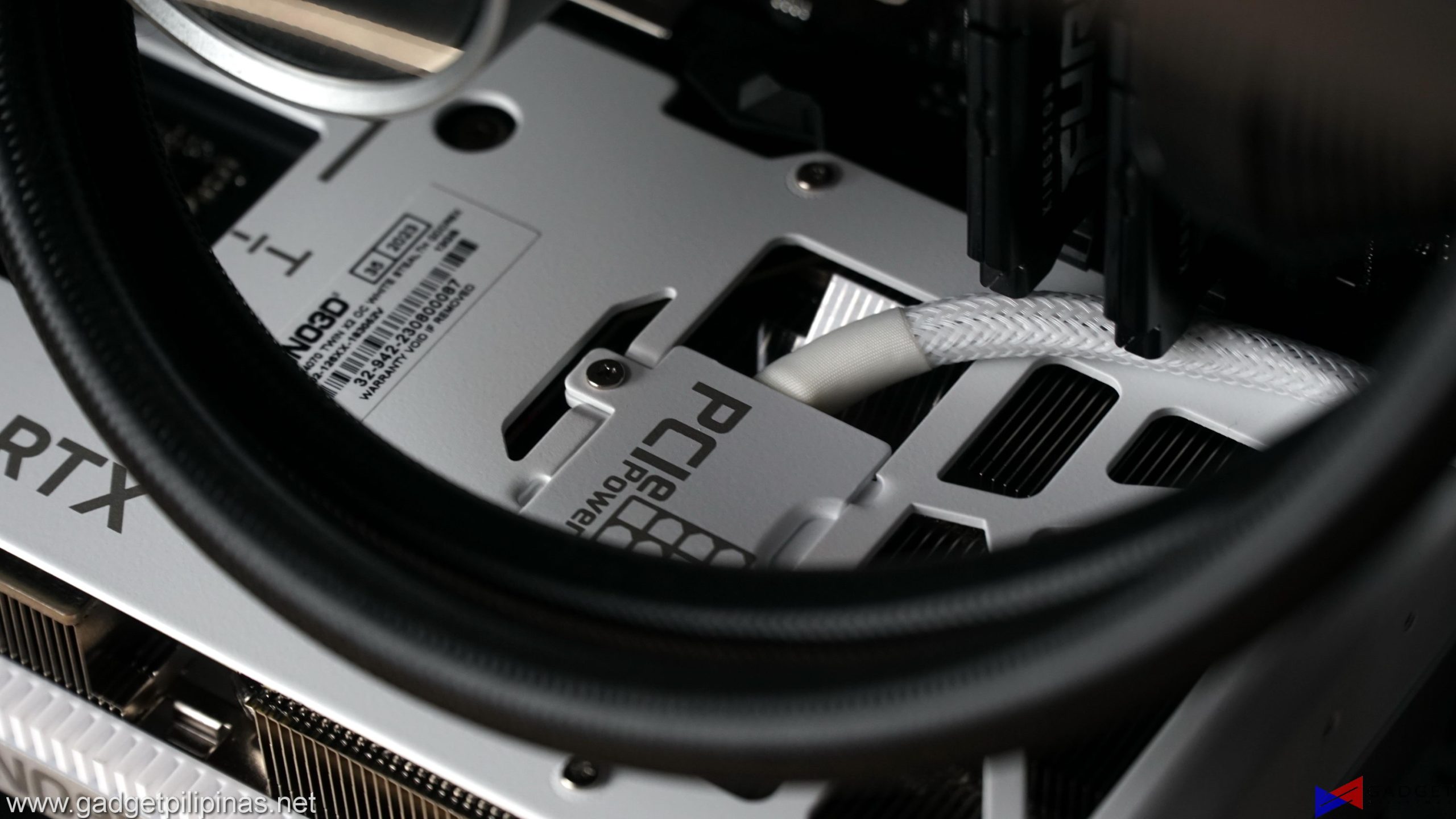
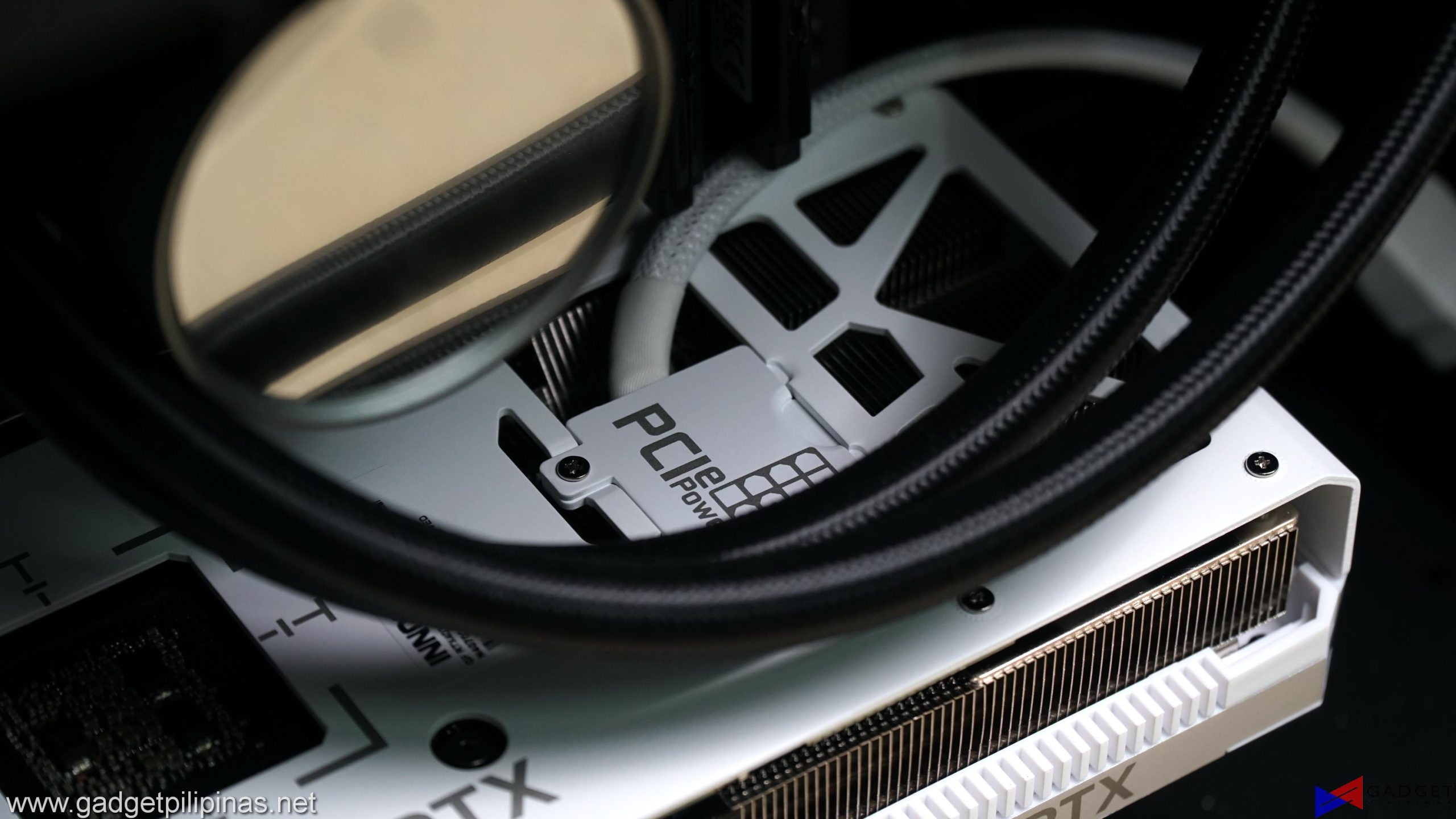
Plugging in the 8-pin PCI-E cable after installing the graphics card to the case is hard due to the orientation of the connector. We suggest plugging in the cable first before installing the GPU to the 16x slot.
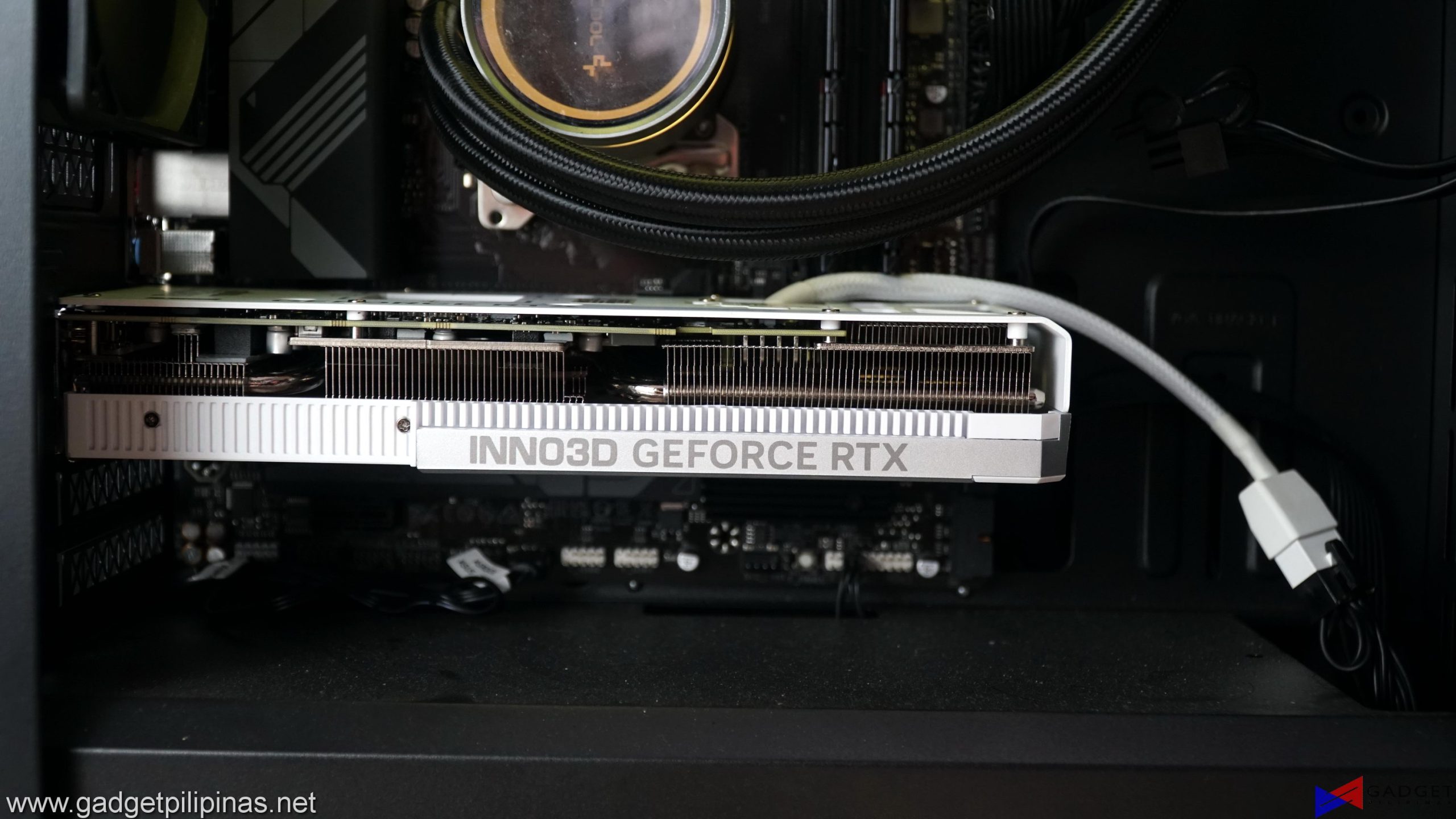
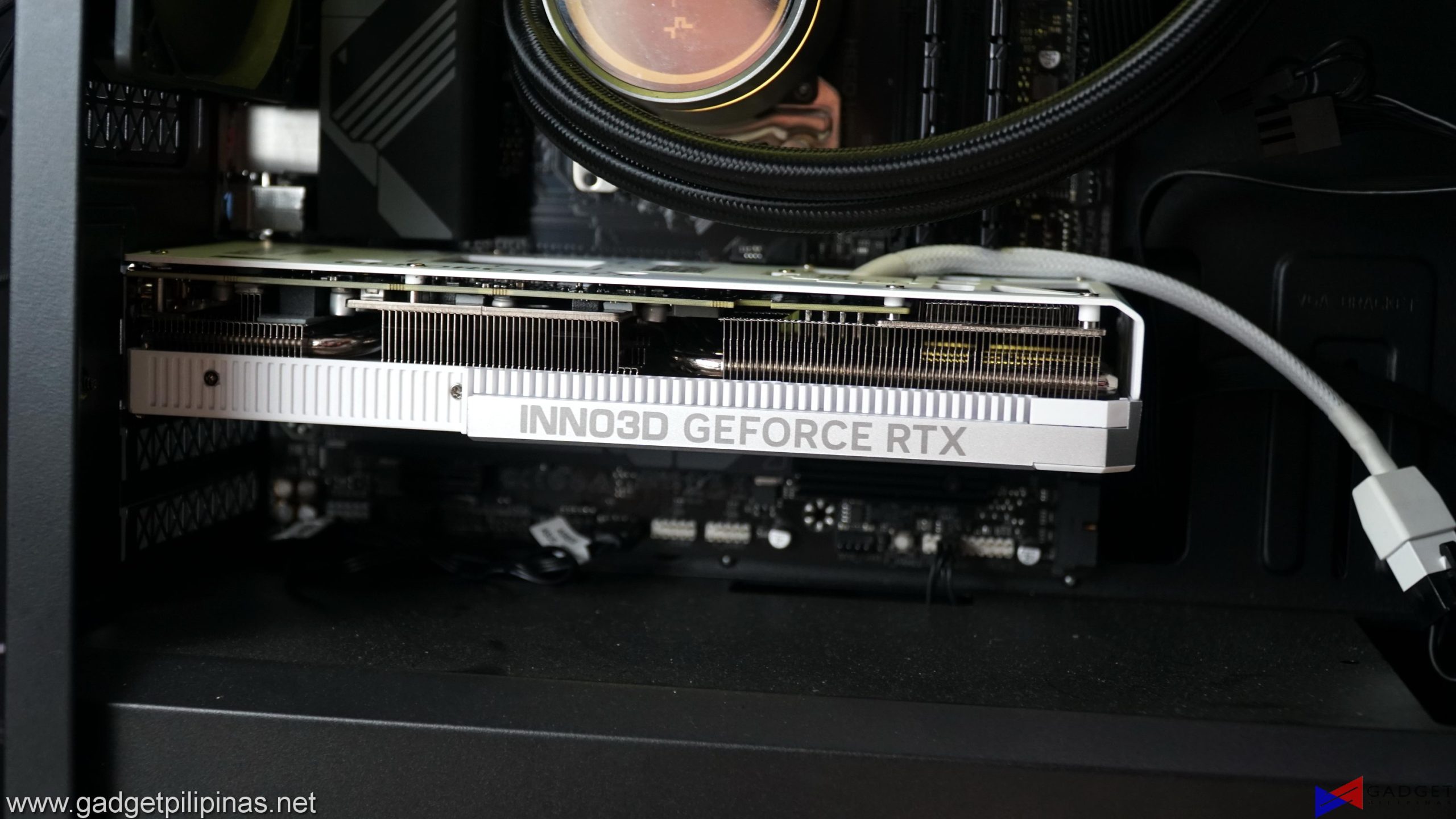
While the hidden power connector does successfully make the side profile of the Inno3D RTX 4070 Twin X2 OC Stealth look cleaner, there’s clearly and literally room for improvement – perhaps an integrated routing path for the cable to exit on the right side of the graphics card. Depending on your memory and PCI-E cable of choice, you may not be able to route the cable further back as there may not be enough clearance for the thickness to go underneath the RAM slot.
Benchmark Setup and Test Methodology
Gadget Pilipinas’ testing philosophy is to provide detail-oriented results as accurately as possible so that our readers can replicate our tests given that these conditions are met. Different benchmarking apps and sequences are used depending on the component or device being tested.
| CPU | Intel Core i9 13900K |
| COOLER | ASUS ROG RYUJIN II 360mm V2 – Noctua NT-H2 Thermal Paste |
| MOTHERBOARD | ASUS ROG Strix Z790-E Gaming |
| MEMORY | Kingston Fury Beast RGB 32GB(2x16GB) 6000 MHz DDR5 |
| GPUs | Nvidia RTX 4090 FE | Inno3D RTX 4090 | RTX 4080 FE | ASUS TUF RTX 4080 | RTX 4070 FE | RTX 4060 Ti FE | Inno3D RTX 4060 536.2 driver | AMD RX 7600 |
| STORAGE | Kingston KC3000 1TB PCI-E Gen 4 SSD |
| POWER SUPPLY | FSP HYDRO GT PRO 1000W Gold ATX 3.0 |
| OPERATING SYSTEM | Windows 11 Pro Build 22H2 |
We use CapFrameX 1.7.1 as our primary FPS capture and analysis tool for all our gaming benchmarks. The latest build version of Windows 11 Pro and WHQL-certified drivers are used for our benchmarks. Readings such as temperatures and power draws are recorded using HWINFO64, and other relevant software for cross-checking.
Inno3D RTX 4070 Twin X2 OC White Stealth Benchmarks
COUNTER-STRIKE: GLOBAL OFFENSIVE
Marvel’s Spider-man: Miles Morales
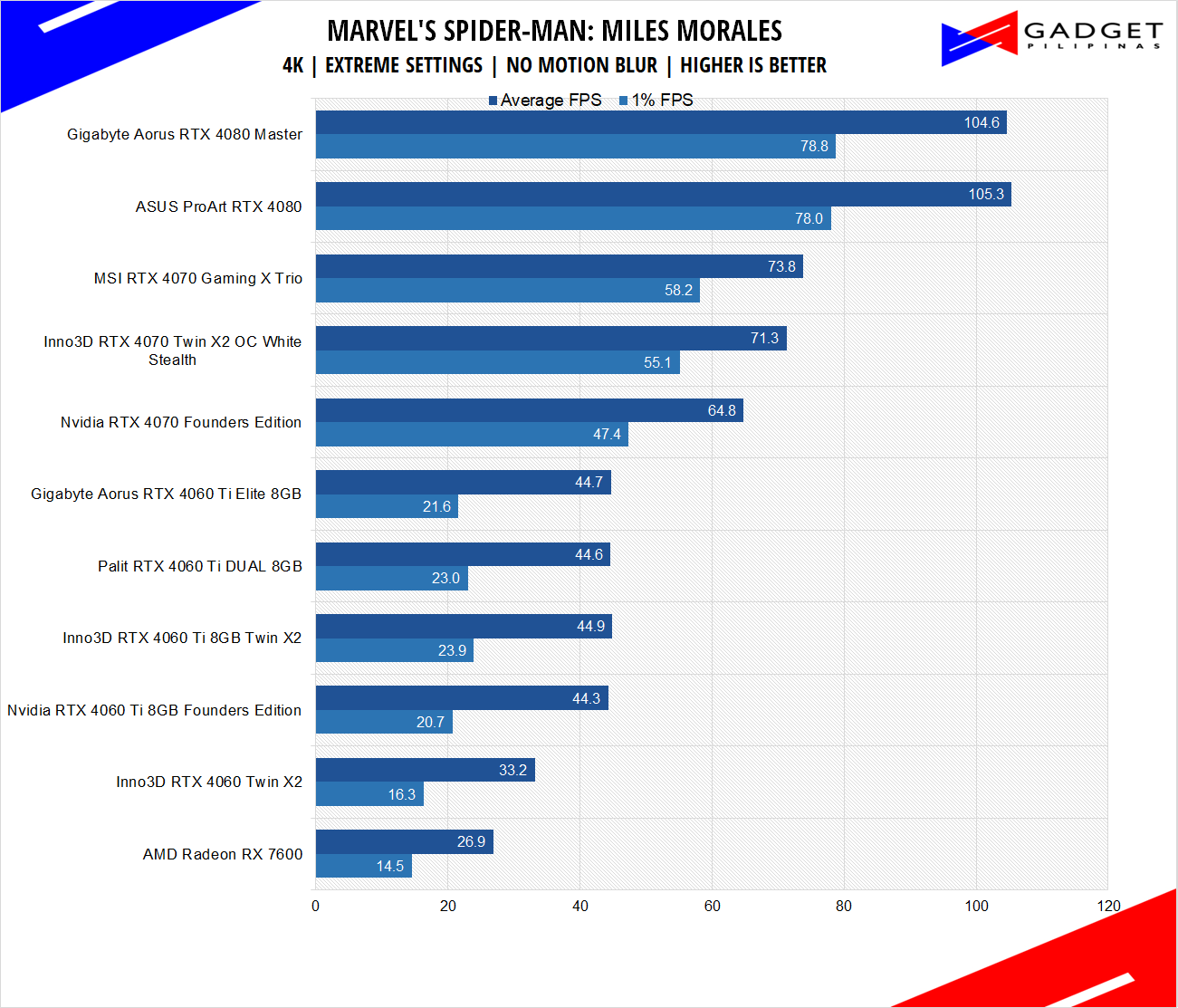


Marvel’s Spider-Man: Miles Morales is developed by Insomniac Games and published by Sony is one of the most popular PC port titles last 2022. It’s one of the few modern game titles that support upscaling technologies FSR, DLSS, and XeSS making it a great title to use for benchmarks.
CALL OF DUTY MODERN WARFARE
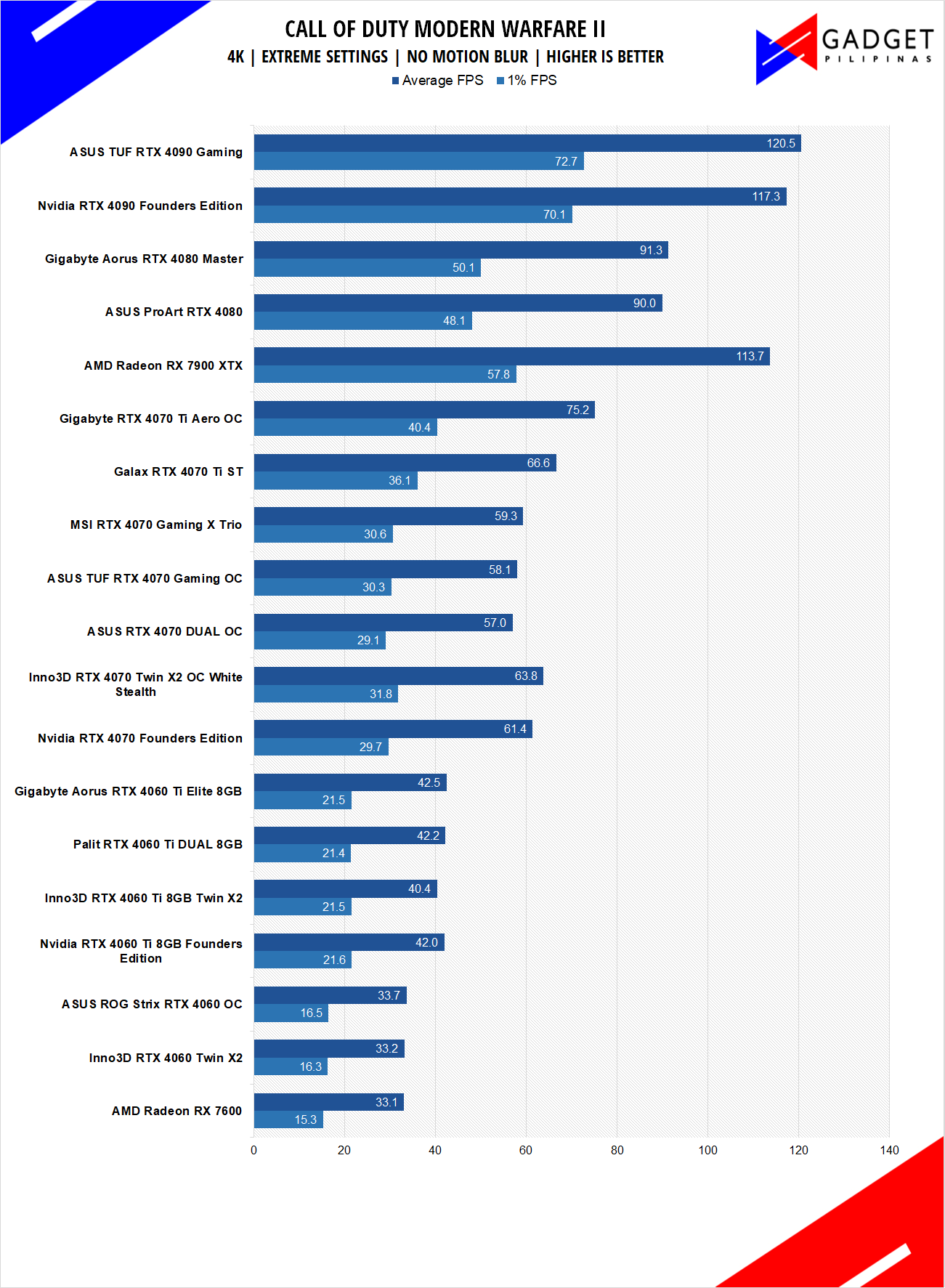
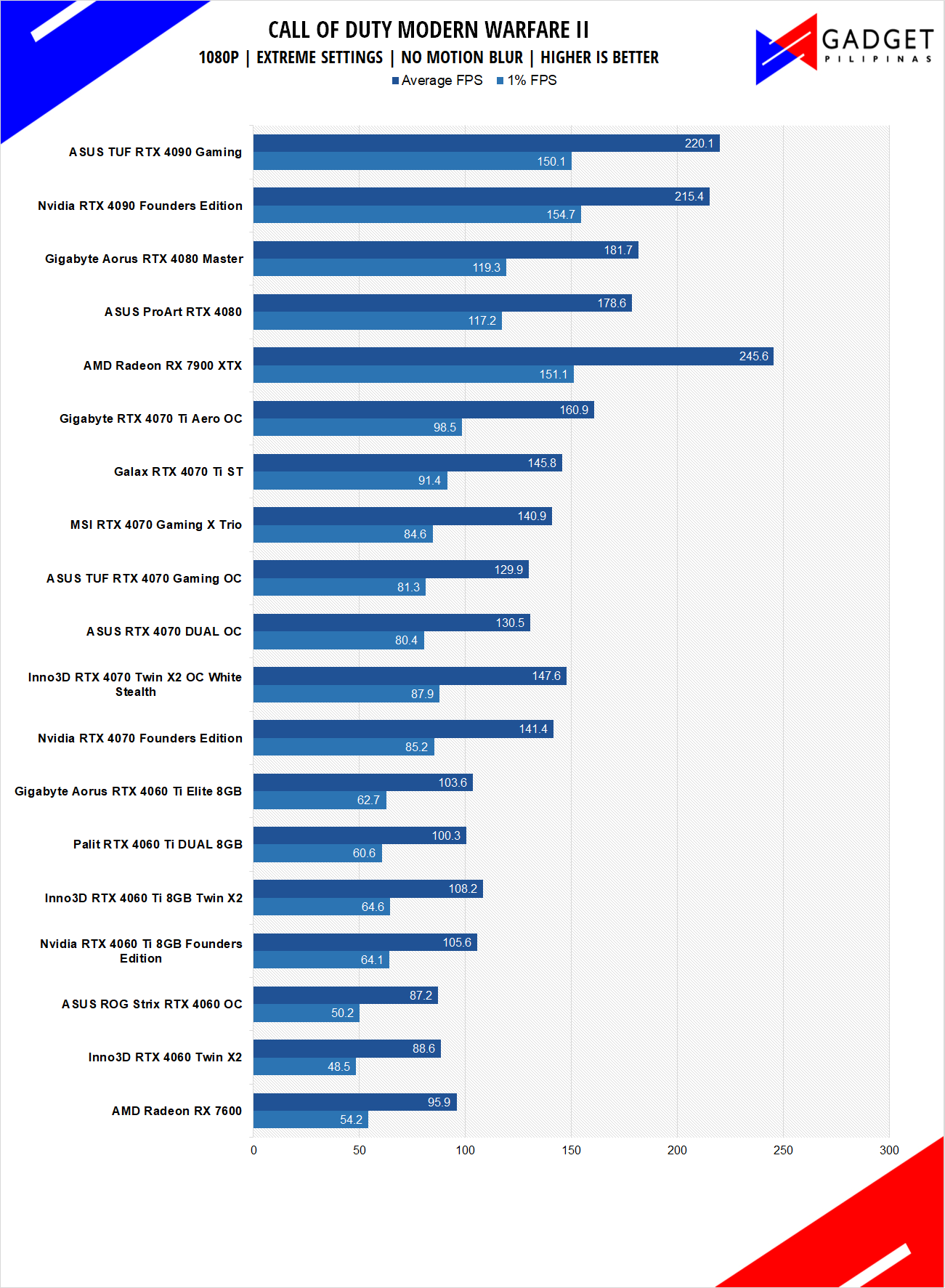
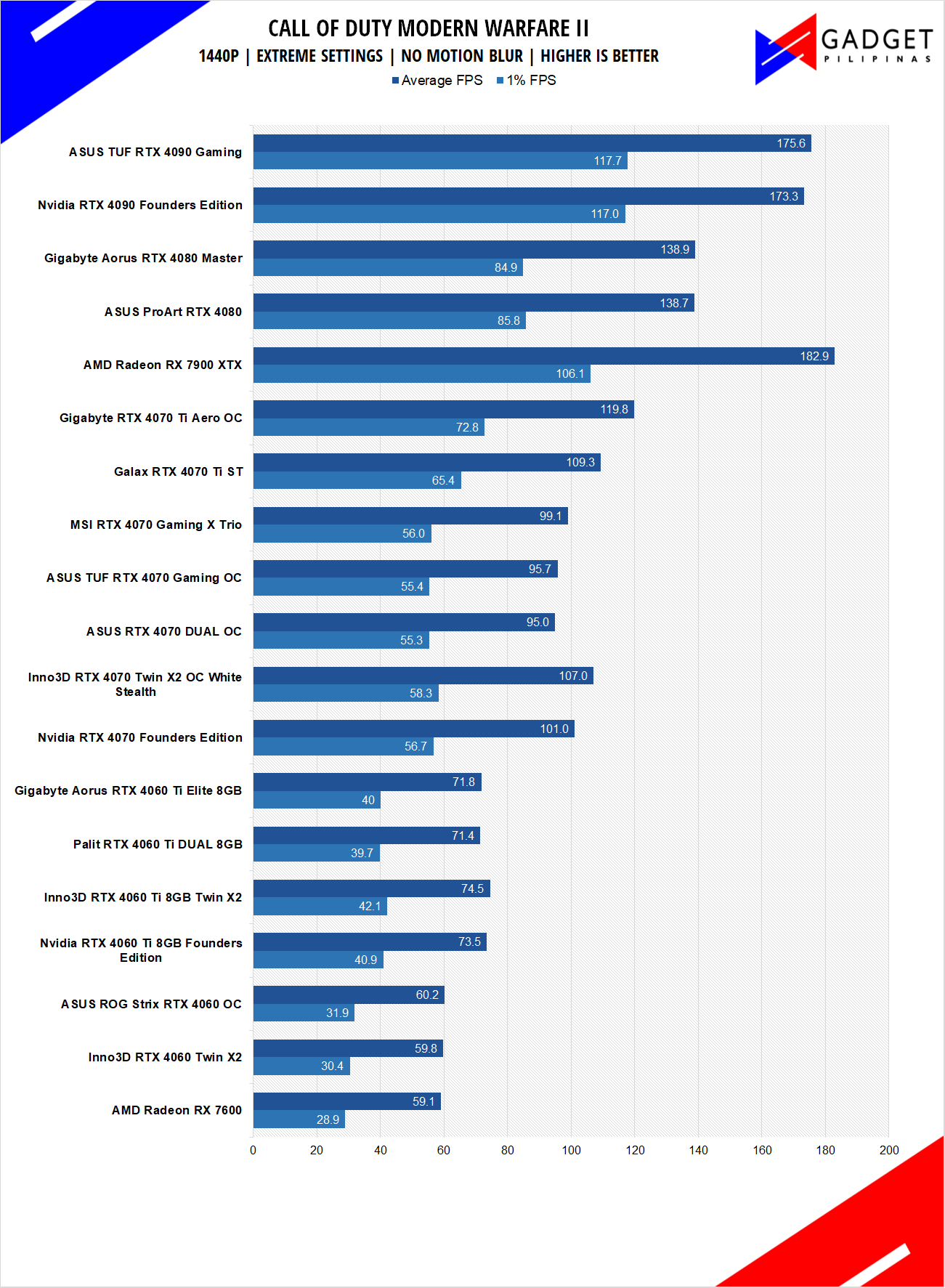
The latest installment in the Call of Duty franchise is a sequel to the much-loved Modern Warfare game that launched in 2019. Call of Duty Modern Warfare II is one of the most demanding titles to date, pushing the latest hardware from Intel, AMD, and Nvidia. CODMW2 is one of the few games that comes with the DLSS feature without Ray Tracing.
Far Cry 6
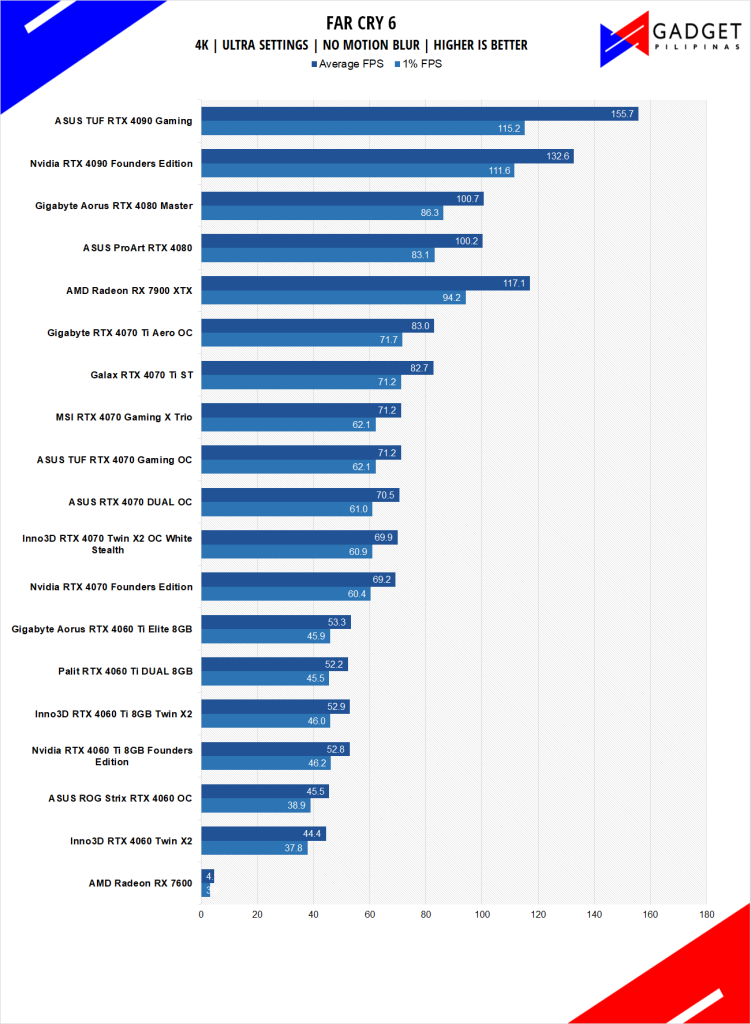
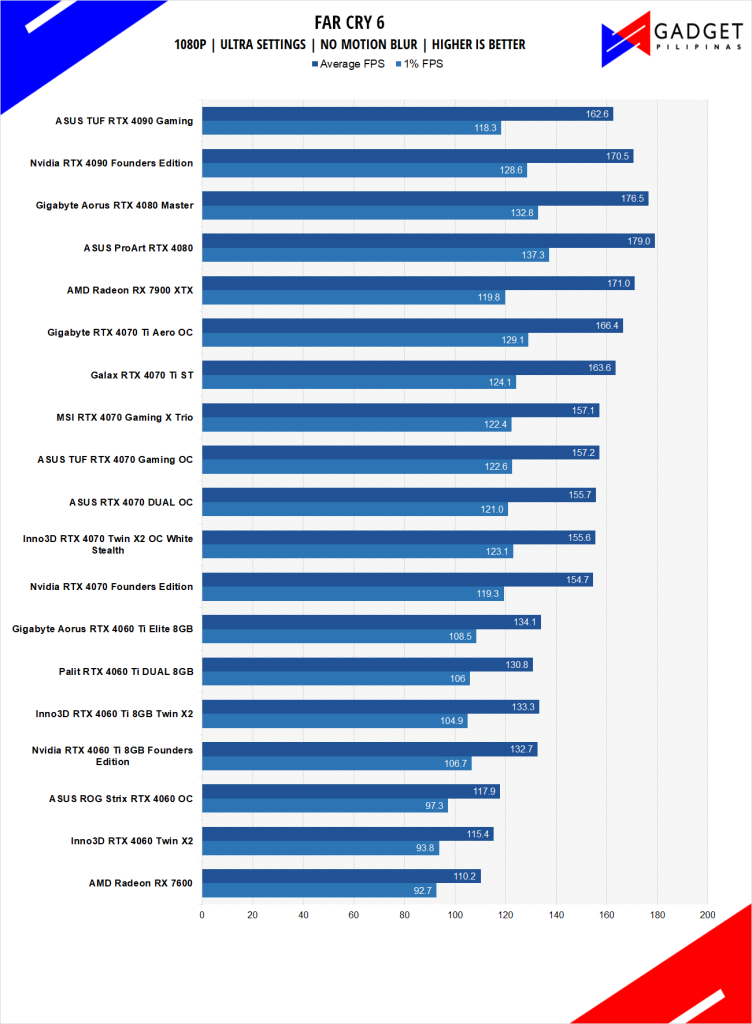
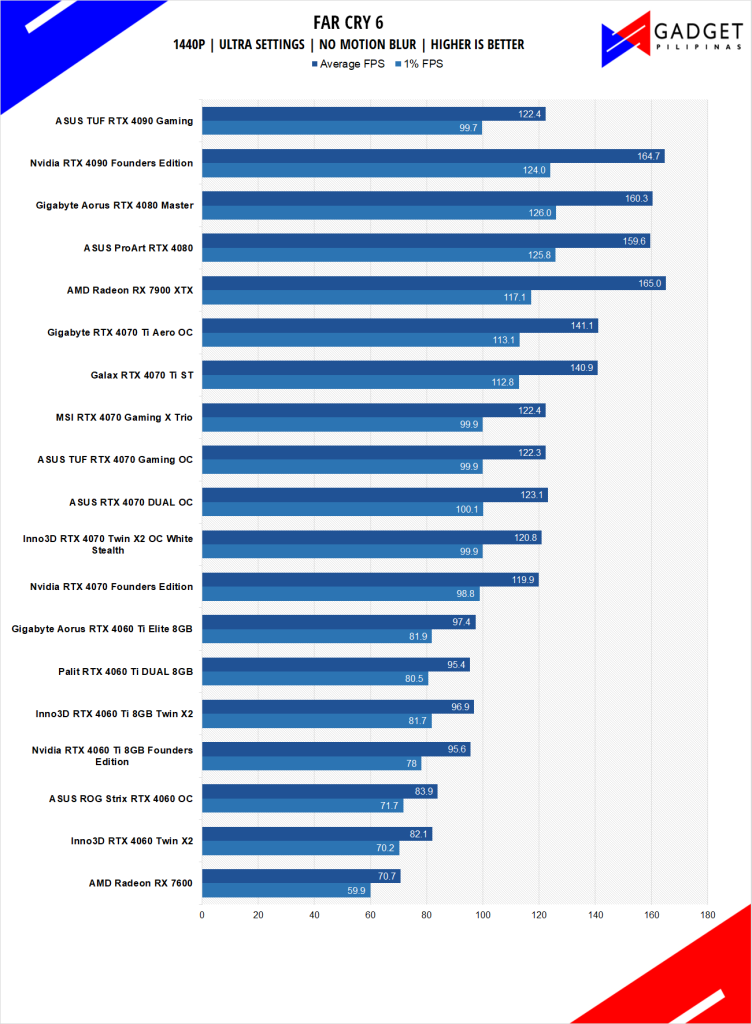
FarCry 6 is an FPS game published by Ubisoft and uses the Dunia engine. It heavily relies on and takes advantage of DirectX 12 to render a realistic environment that makes it taxing to both the CPU and GPU. It’s also the first game of the franchise to support Ray Tracing.
Rainbow Six Siege
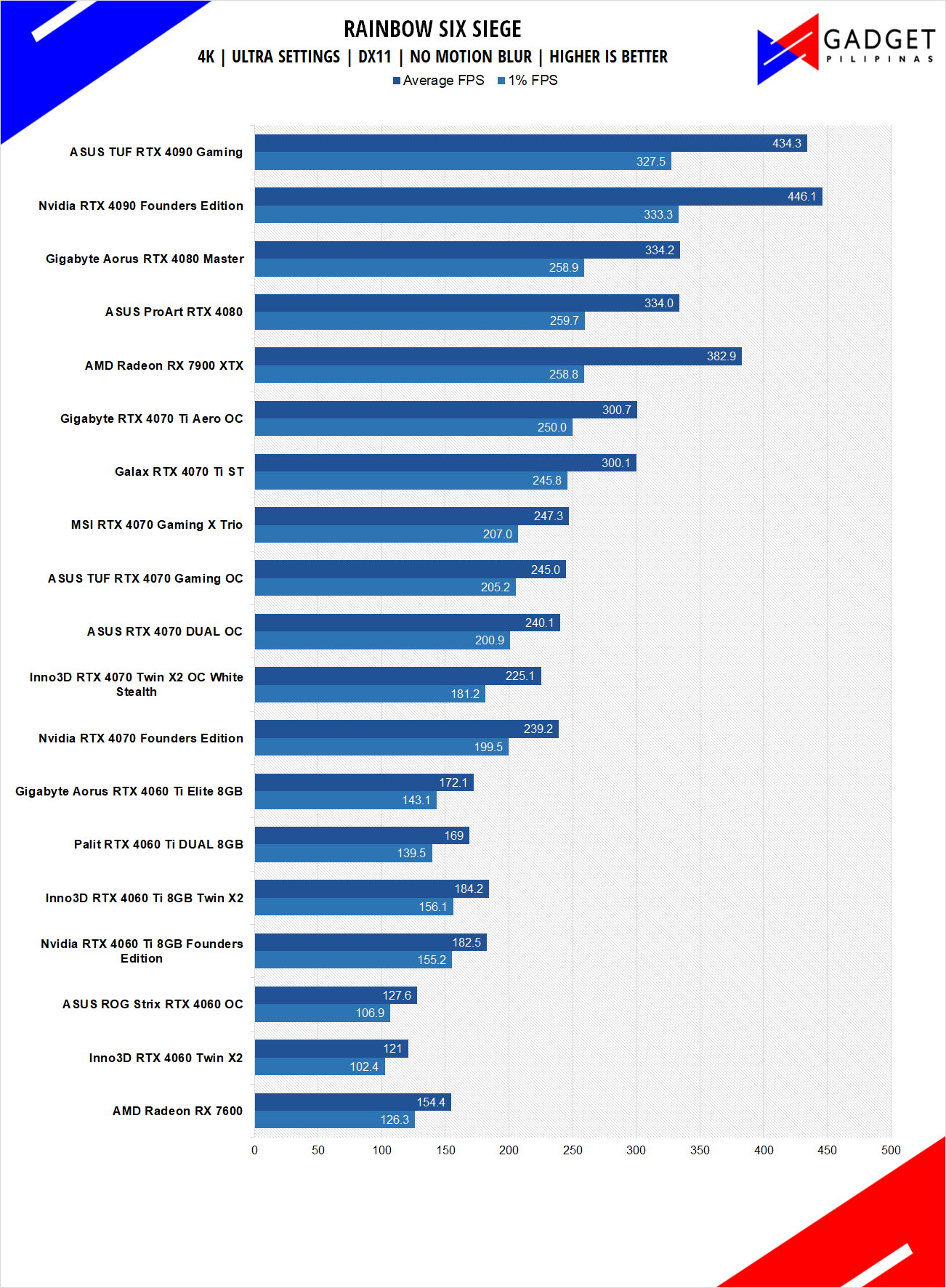
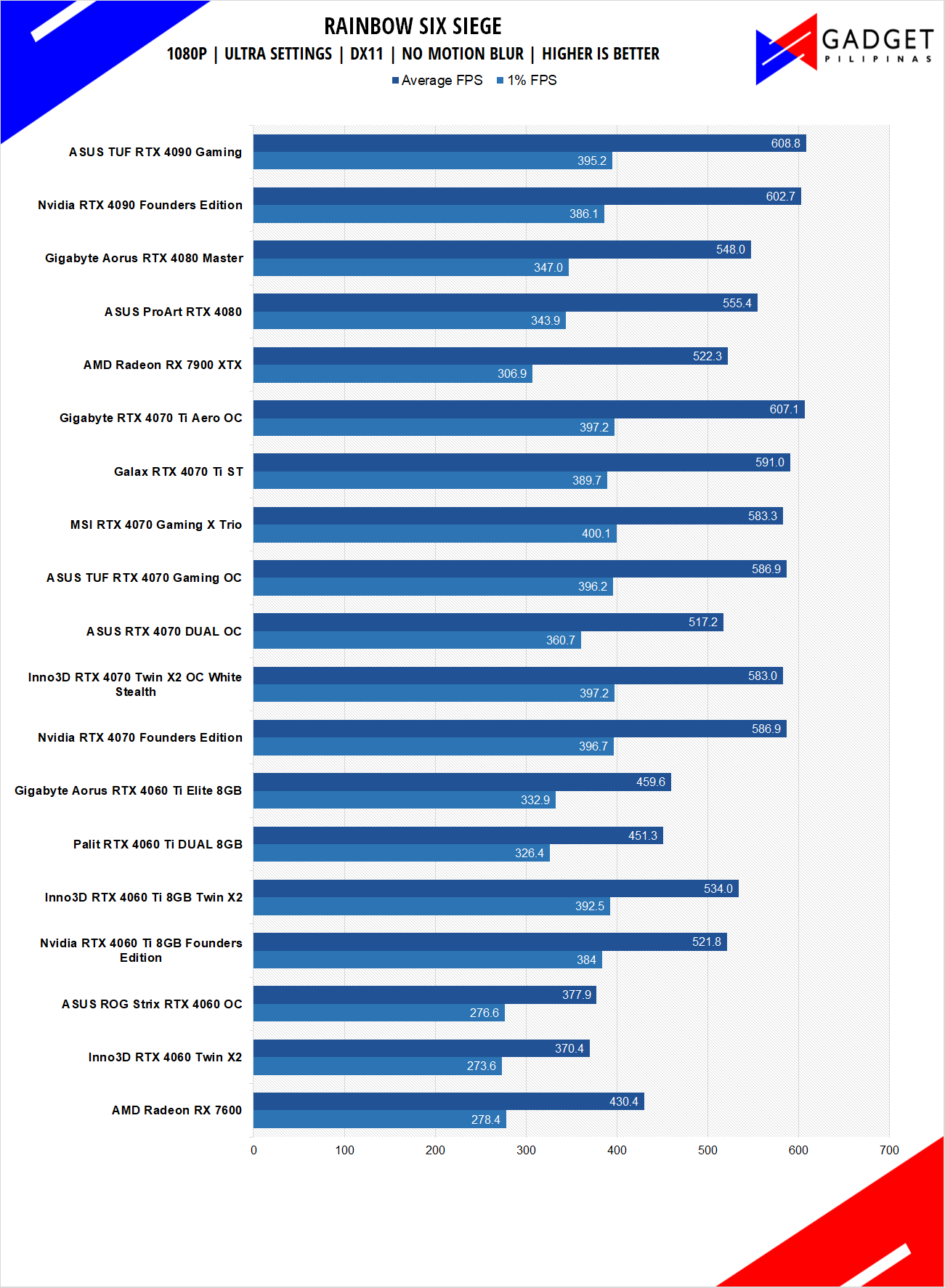
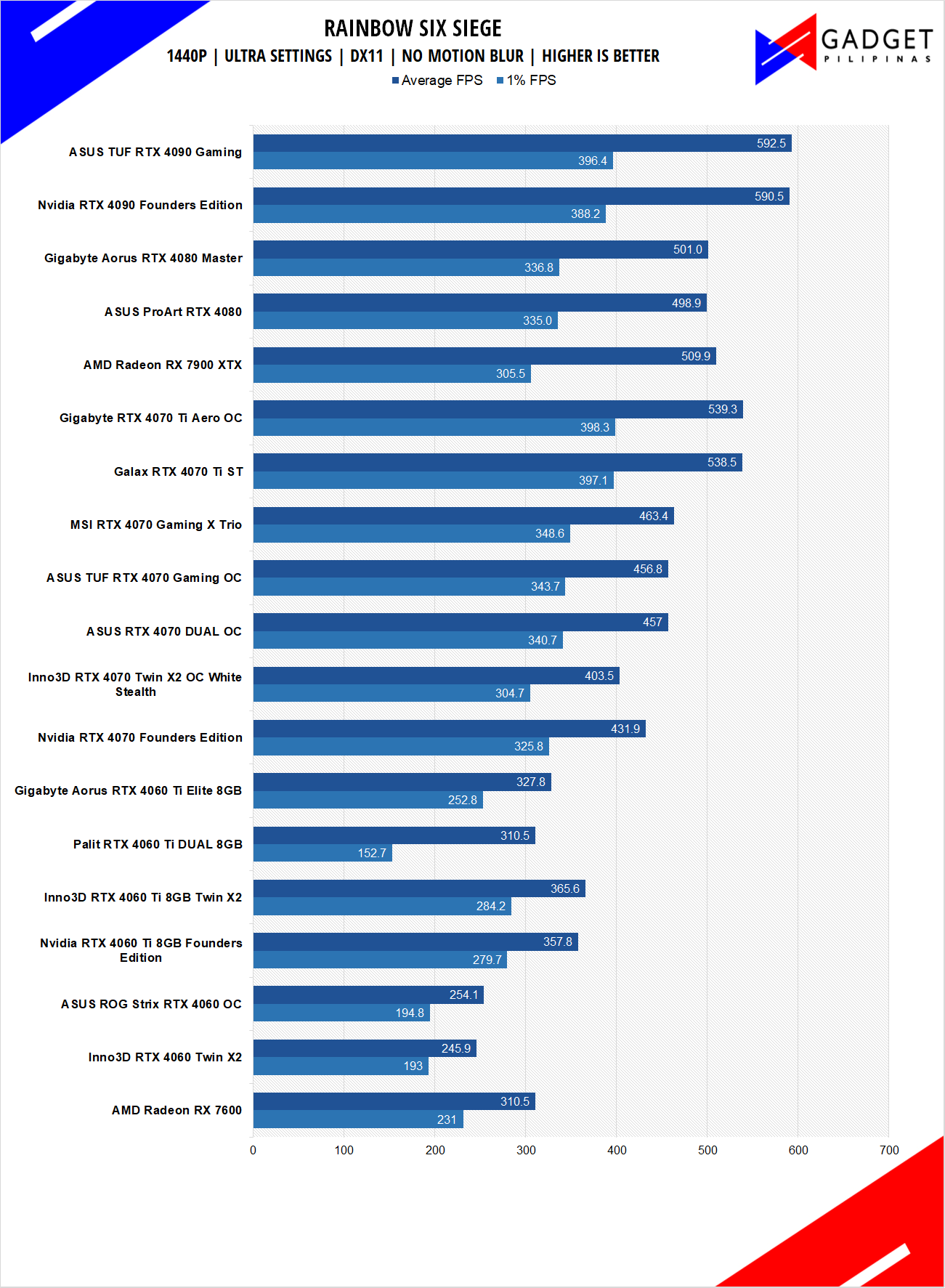
Rainbow Six Seige is one of the few popular AAA games that’s still popular in 2021 due to its competitive gameplay mechanics. R6S uses the AnvilNext game engine, which the game’s publisher, Ubisoft, developed. As of writing, Rainbow Six Siege is currently the most popular Tom Clancy title beating out Wildlands, Breakpoint, and even Division 2.
Cyberpunk 2077
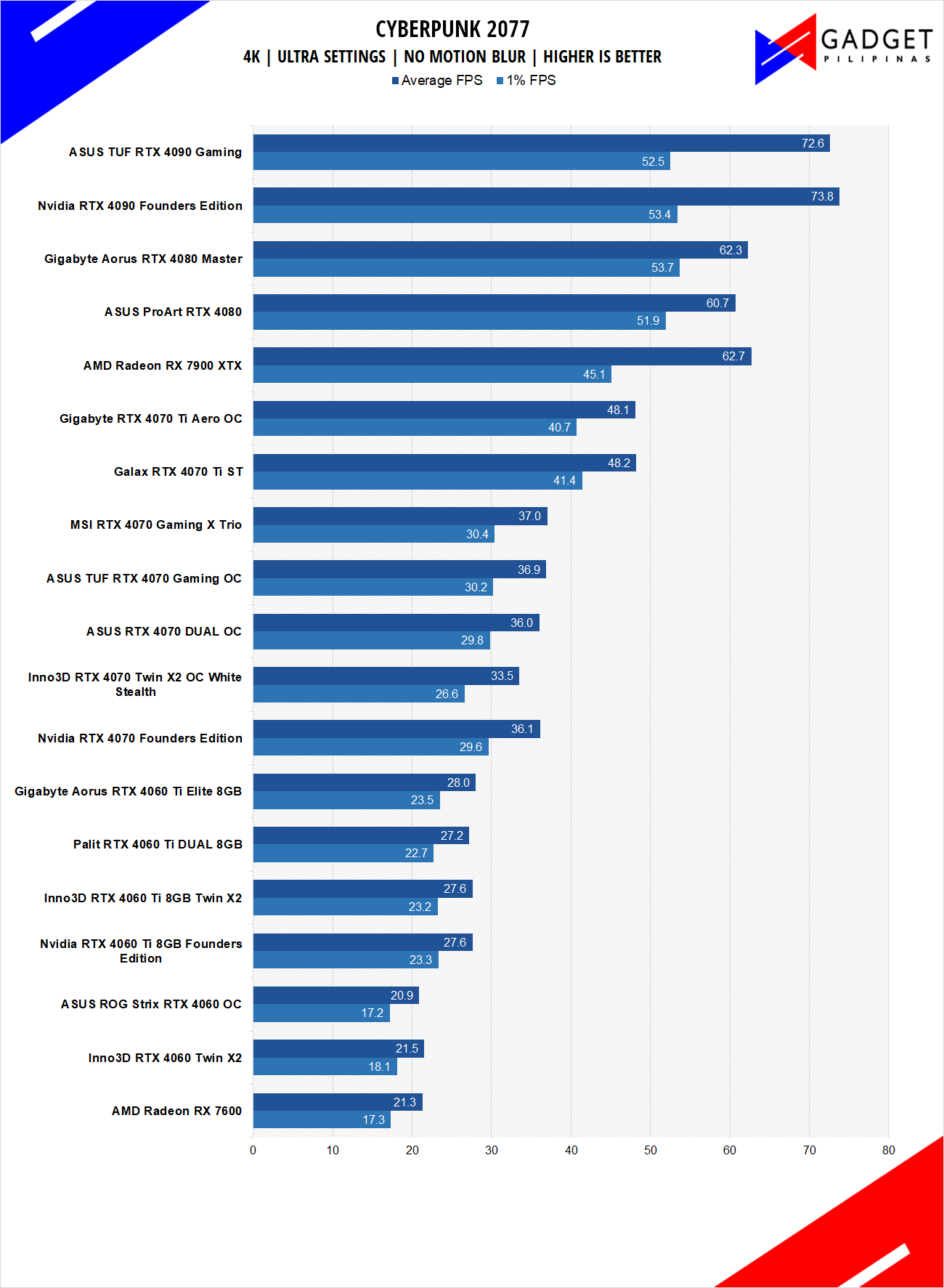
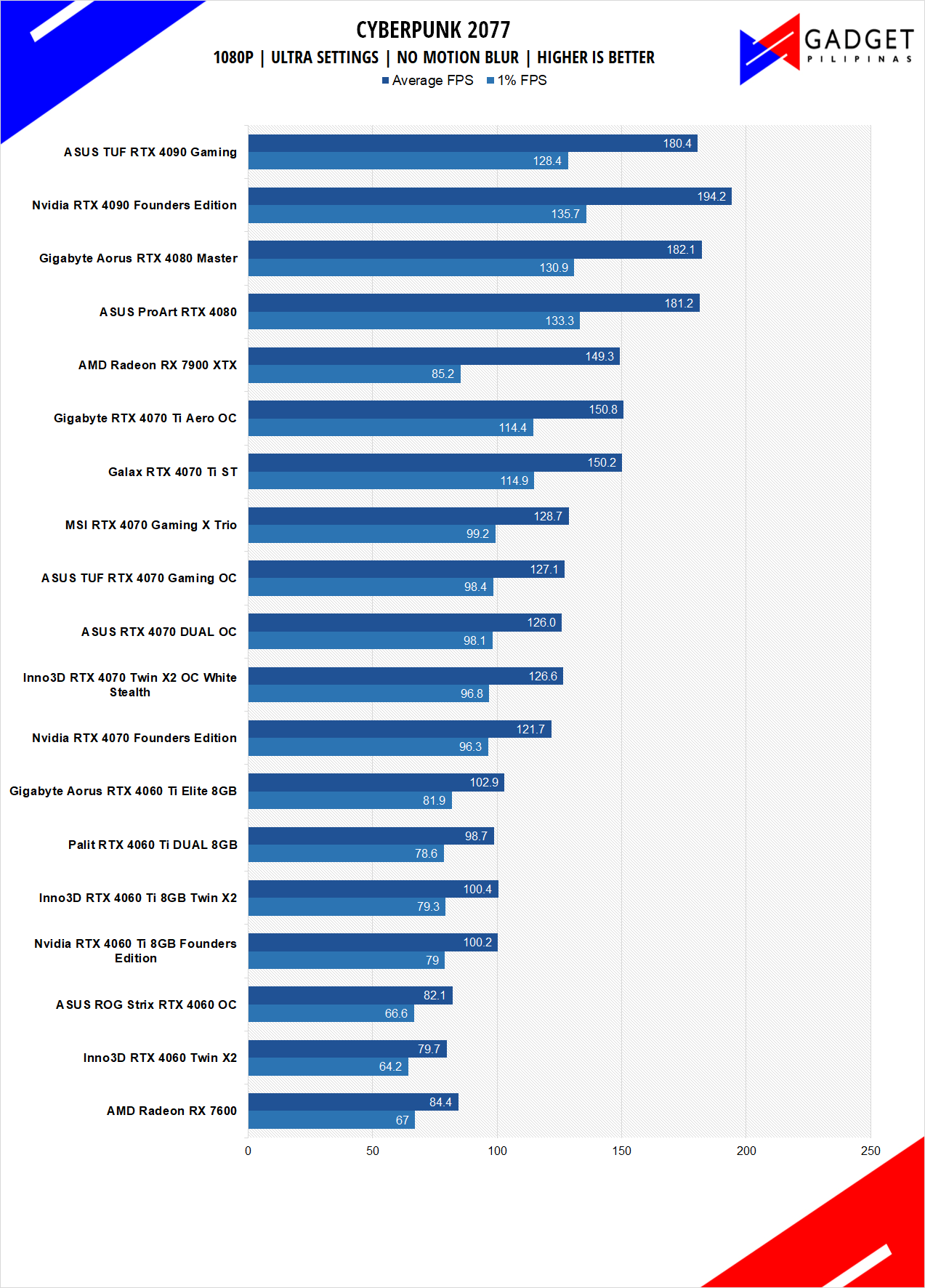
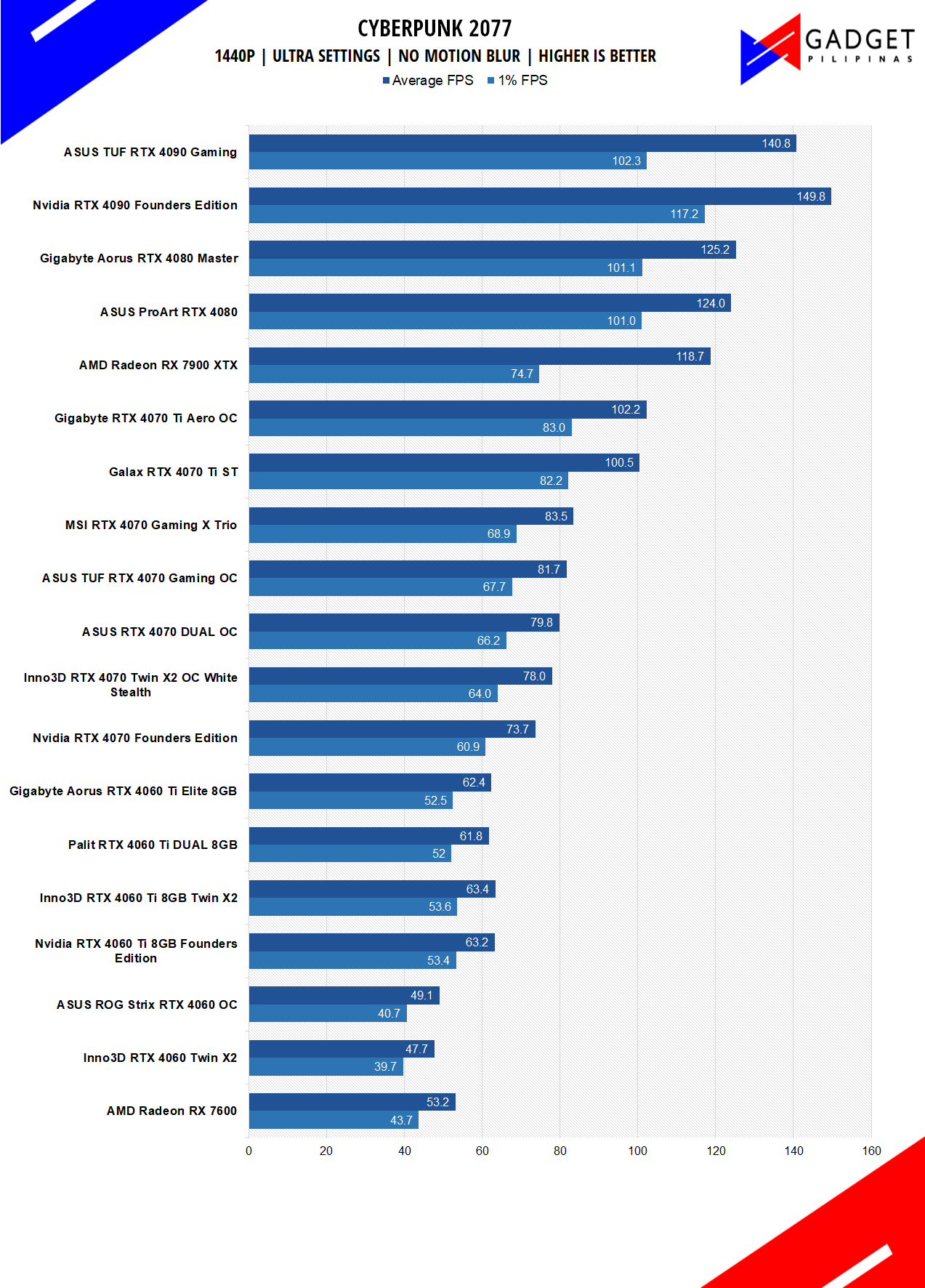
Cyberpunk 2077 is arguably the most hyped game of 2020. Developed by CD Projekt Red, the dystopian open-world, action-adventure RPG sports is one of the most demanding titles to date. Cyberpunk 2077 also supports three Ray Tracing settings as well as DLSS which makes the game a great tool to measure Ray tracing performance for both AMD and Nvidia graphics cards.
Shadow of The Tomb Raider
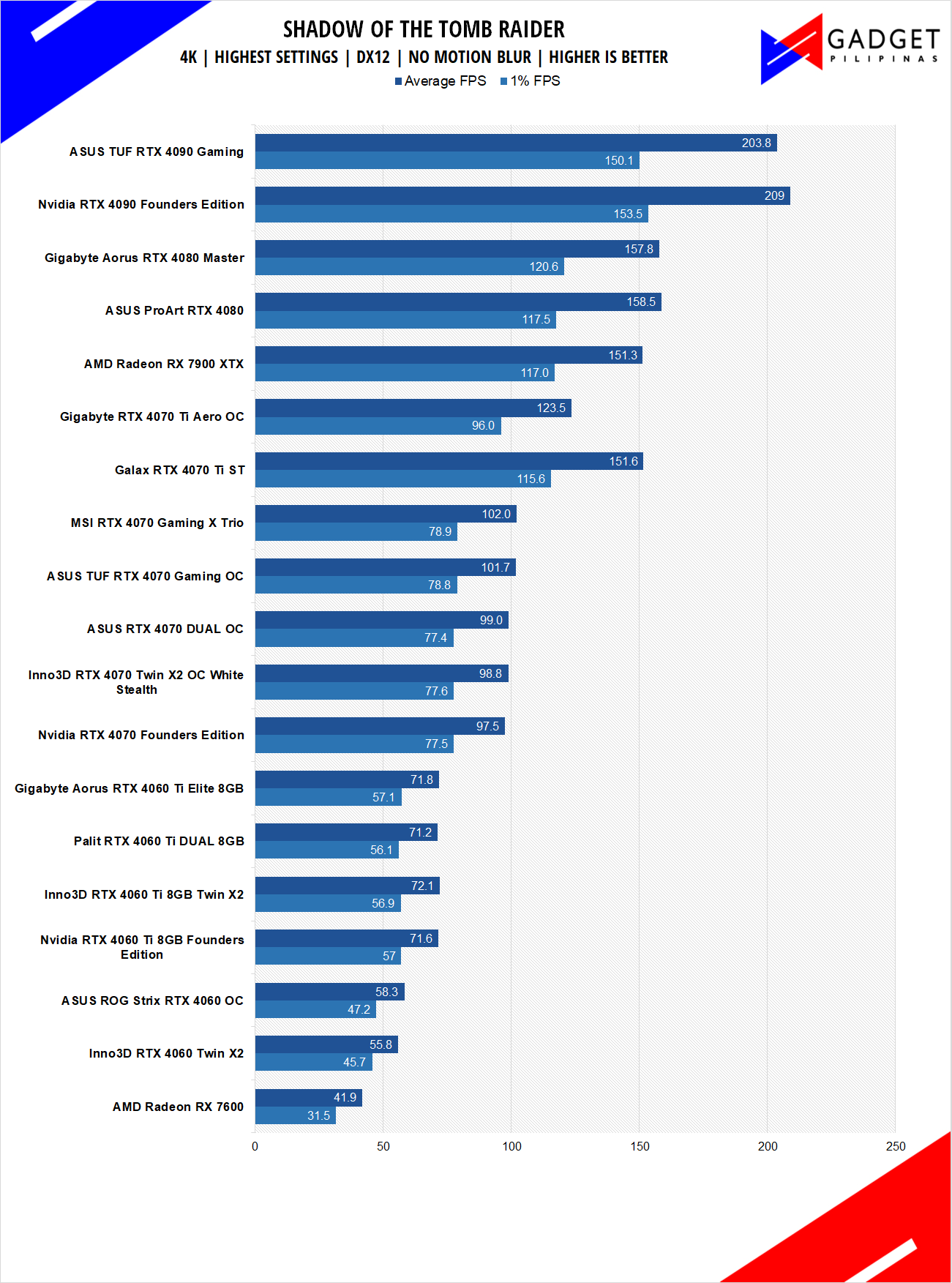
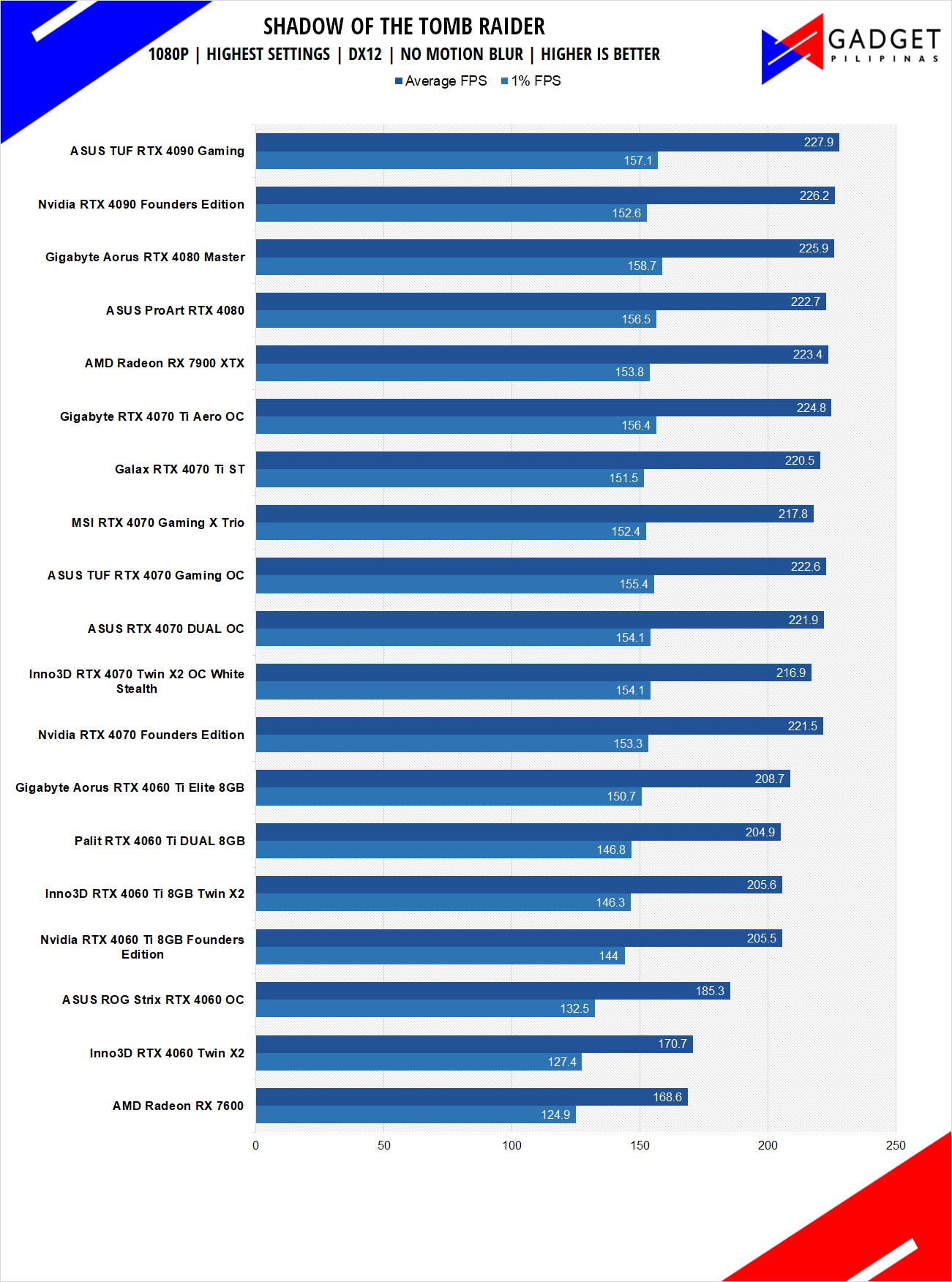
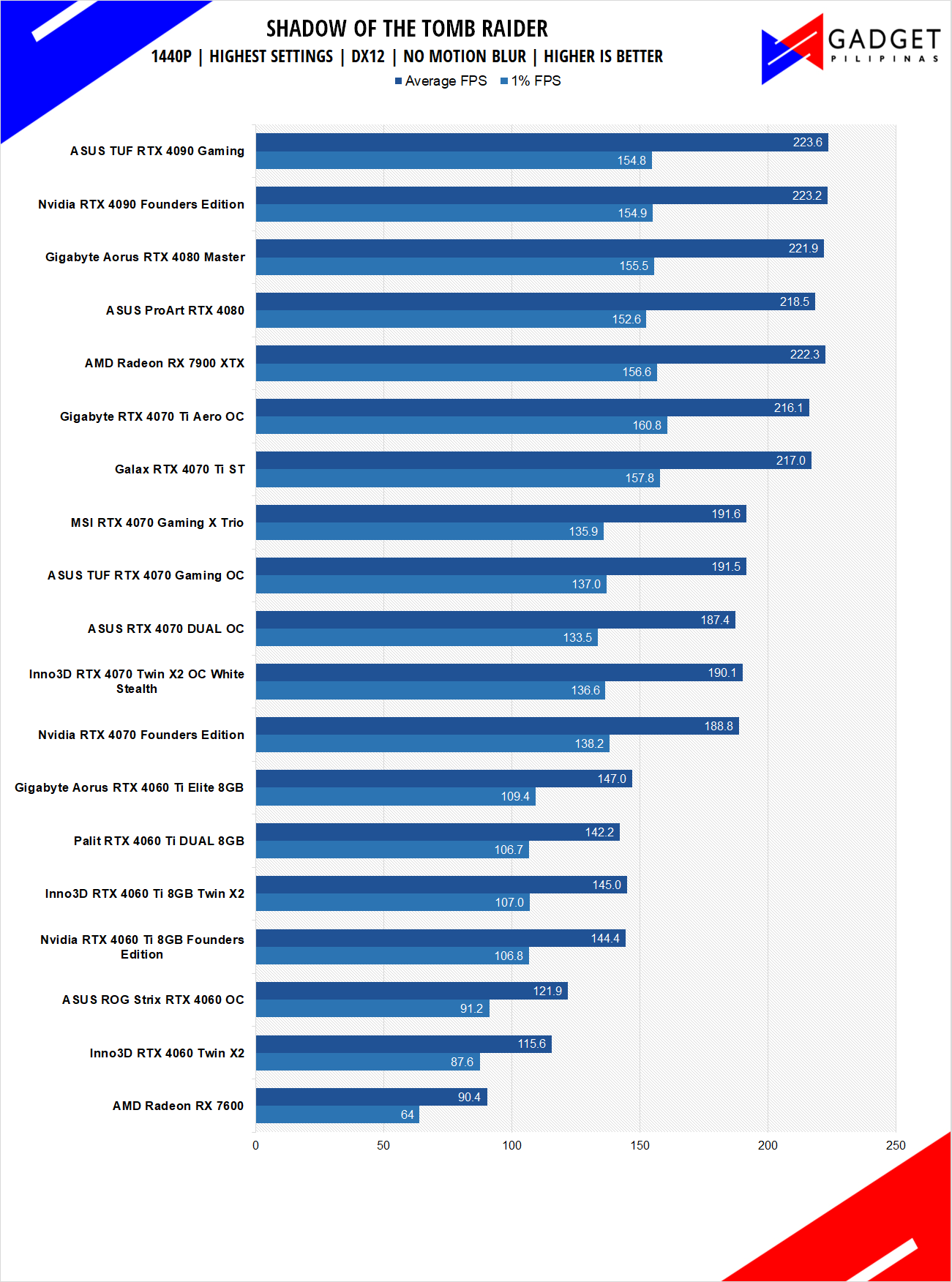
Shadow of The Tomb Raider or SOTR is the latest installment of the Lara Croft Tomb Raider franchise. Developed by Square Enix, SOTR uses the Foundation engine and is further enhanced by Eidos Montreal. SOTR is also one of the first games to come out with Ray Tracing and DLSS support.
Metro Exodus
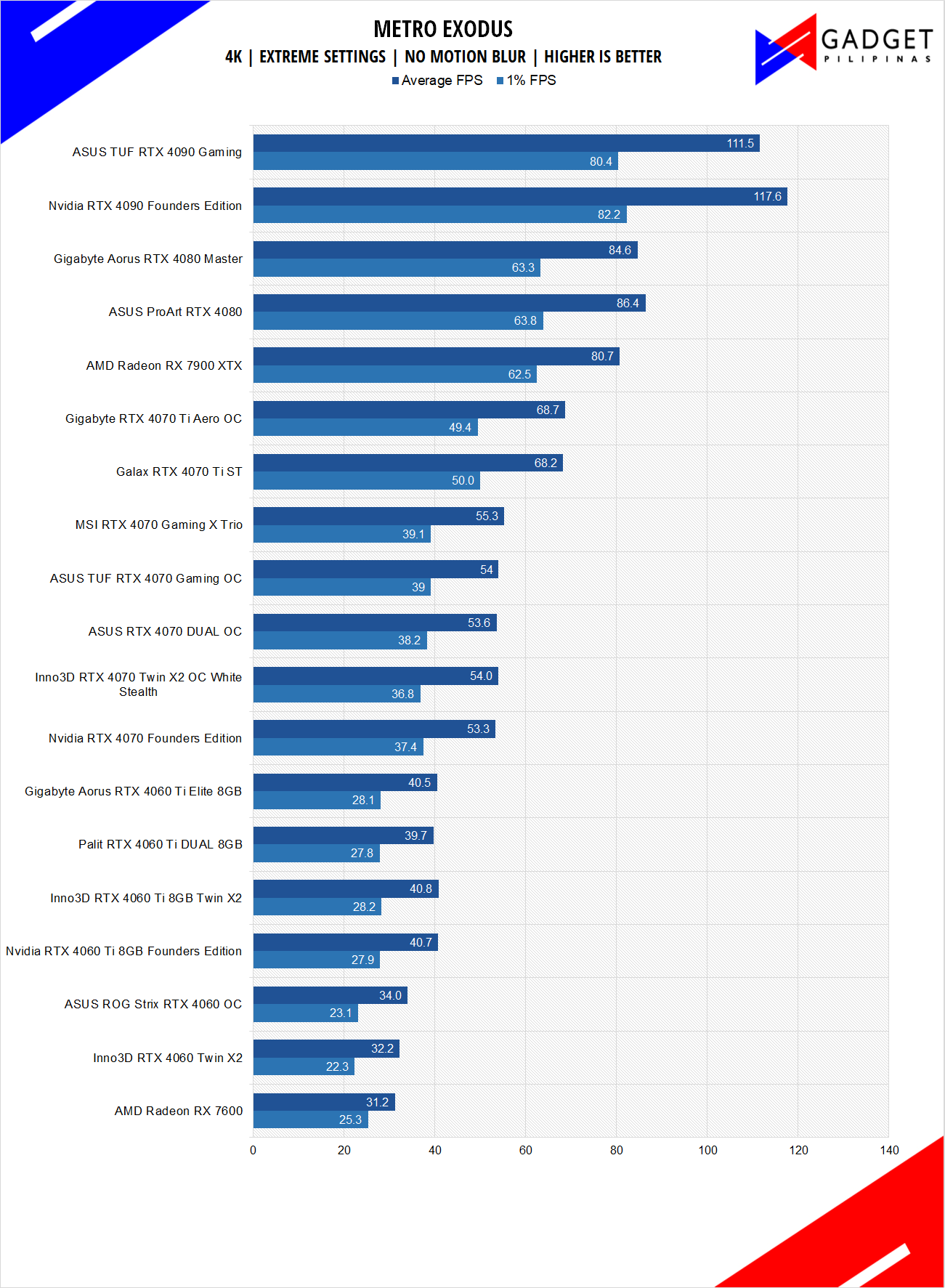
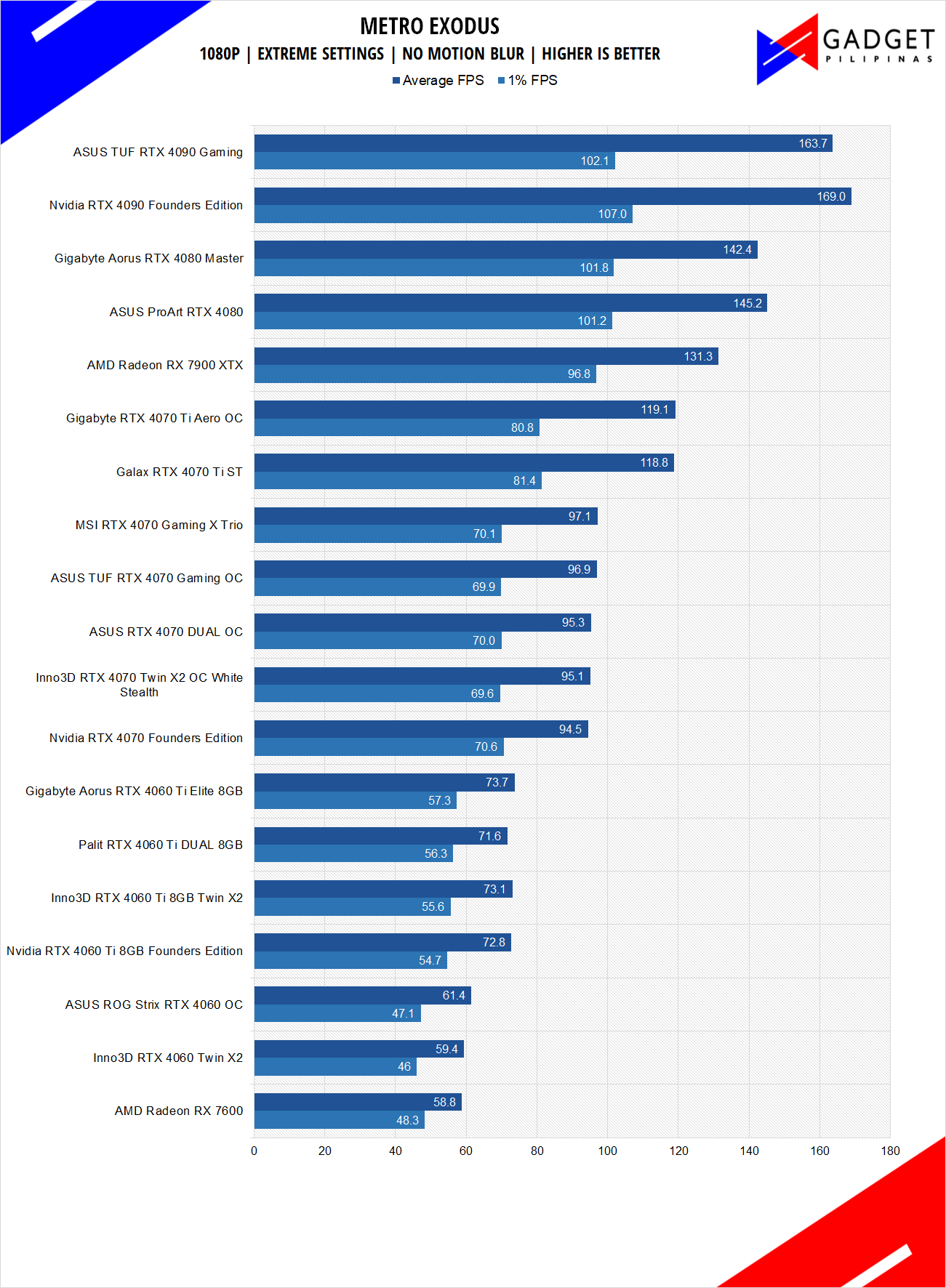
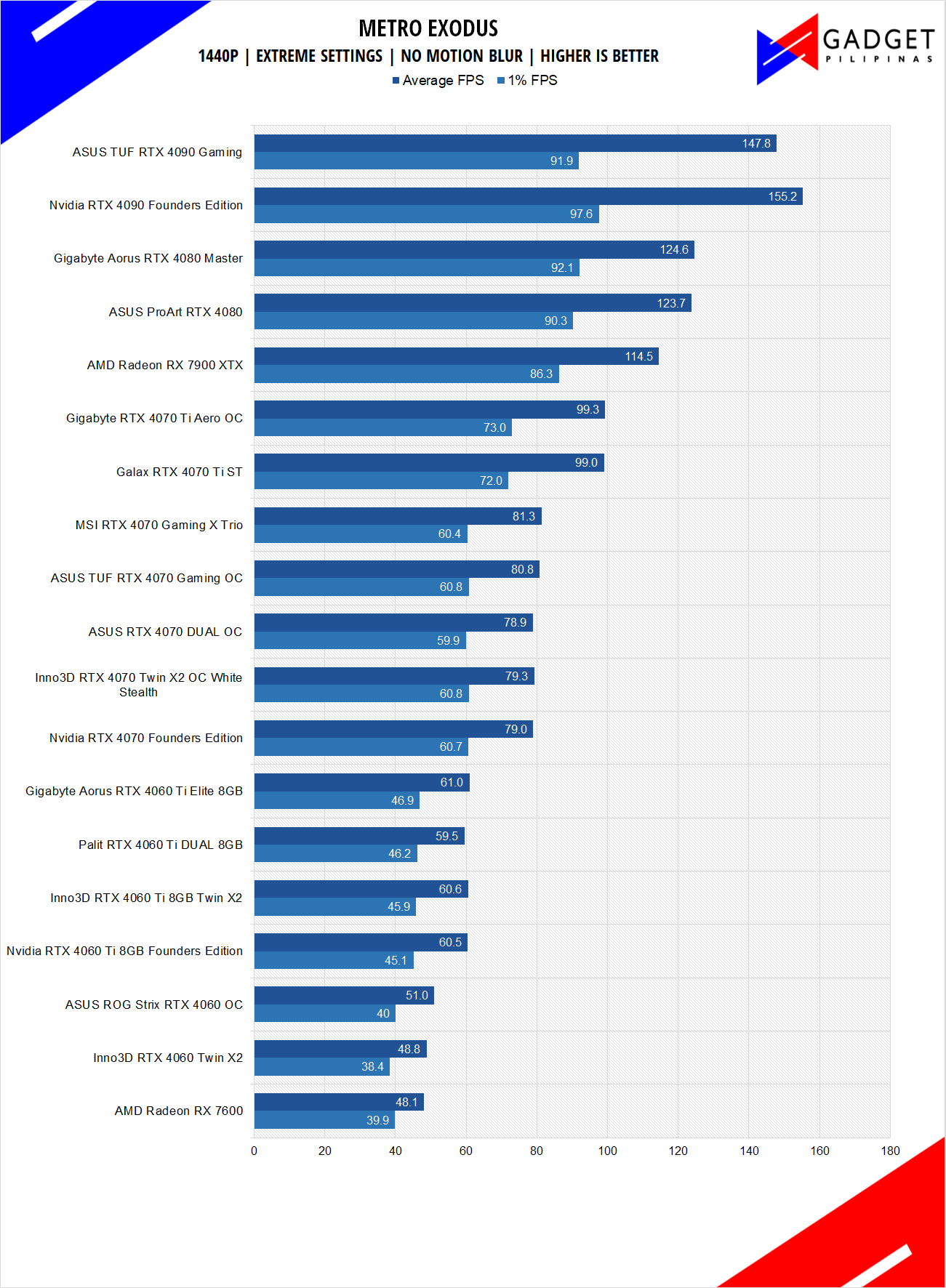
Metro Exodus is the third Metro game trilogy based on Dmitry Glukhovsky’s novels. The game is a first-person shooter with survival horror and stealth elements. The post-apocalyptic game uses 4A Engine by 4A games. Released last 2019, Metro Exodus remains to be one of the most graphically pleasing and demanding games that’s popular to date.
Assassin’s Creed: Valhalla
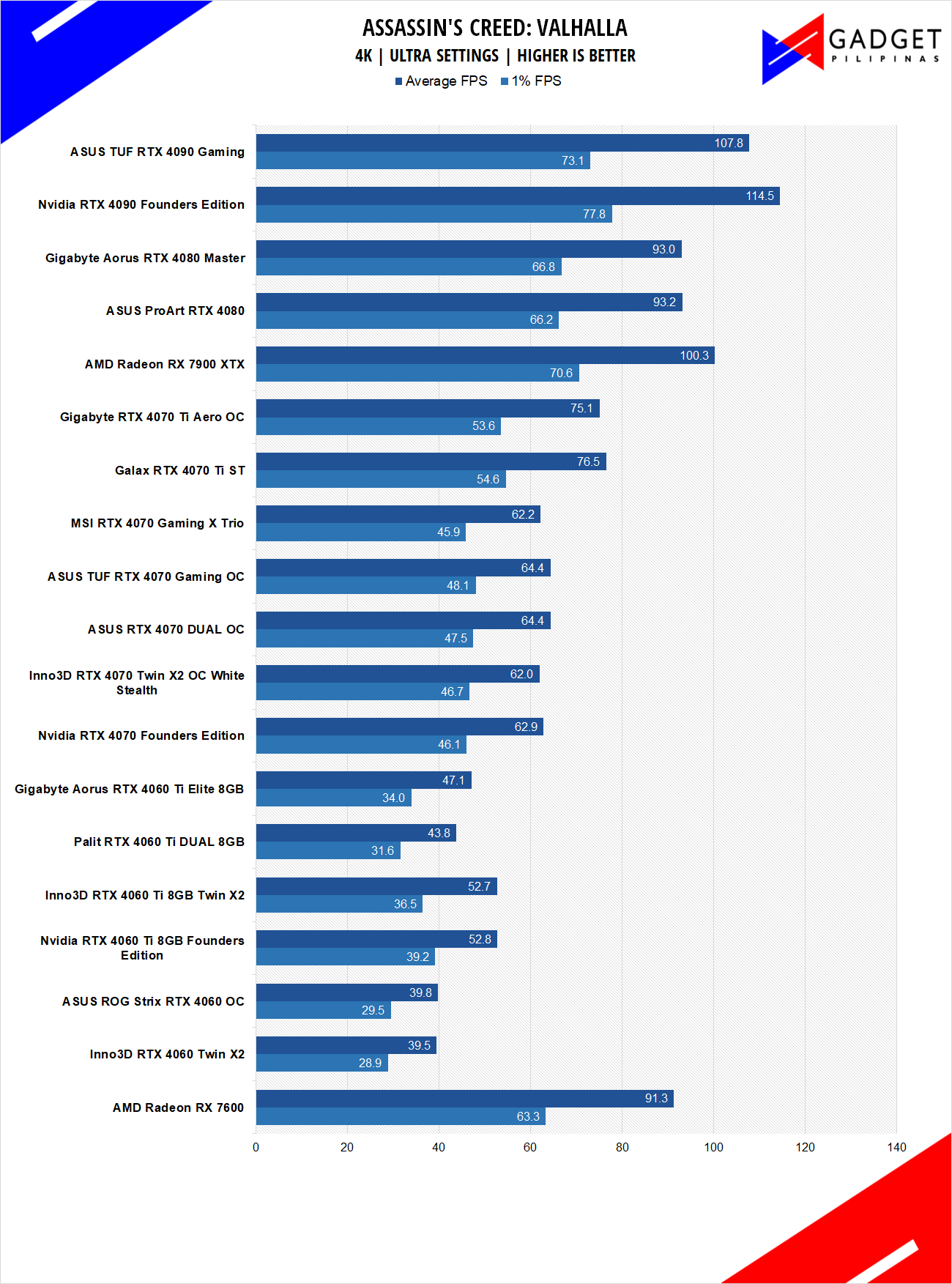
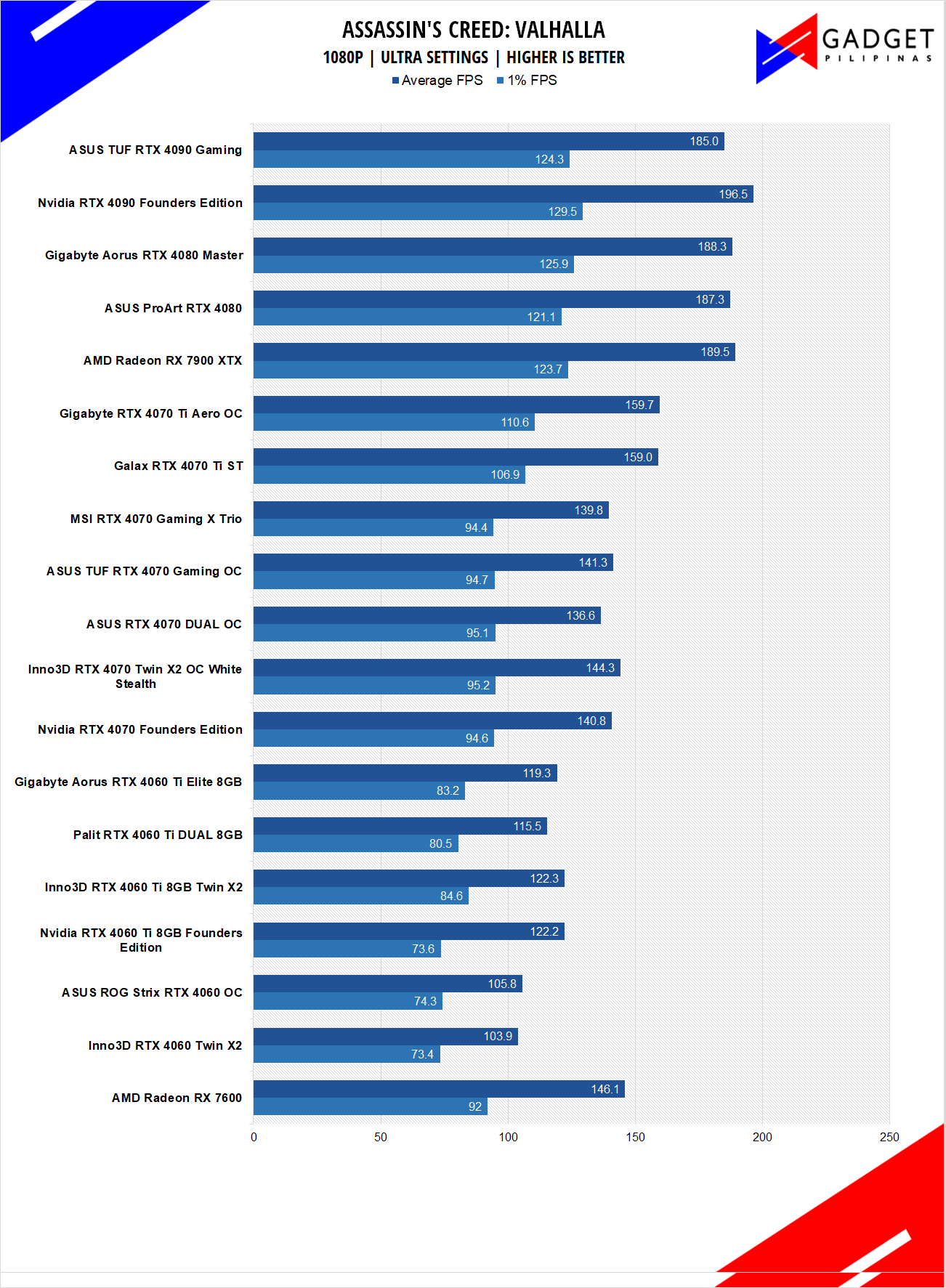
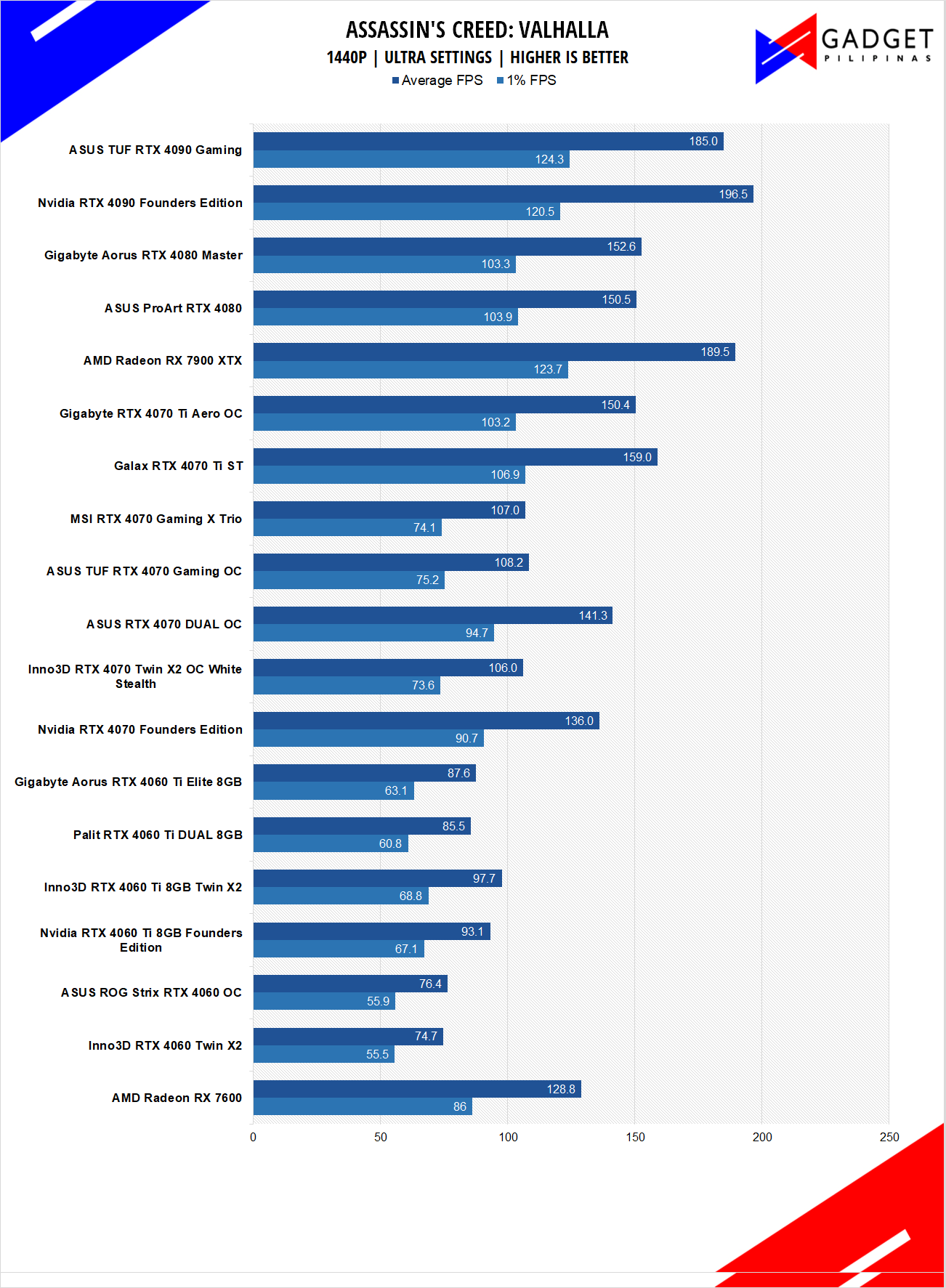
Assassin’s Creed Valhalla is the latest Assassin’s Creed game from Ubisoft Montreal making it the twelfth major installment in the franchise. It uses the AnvilNext 2.0 game engine, an updated version of Rainbow Six Siege’s game engine, and uses the DirectX 12 API.
F1 22
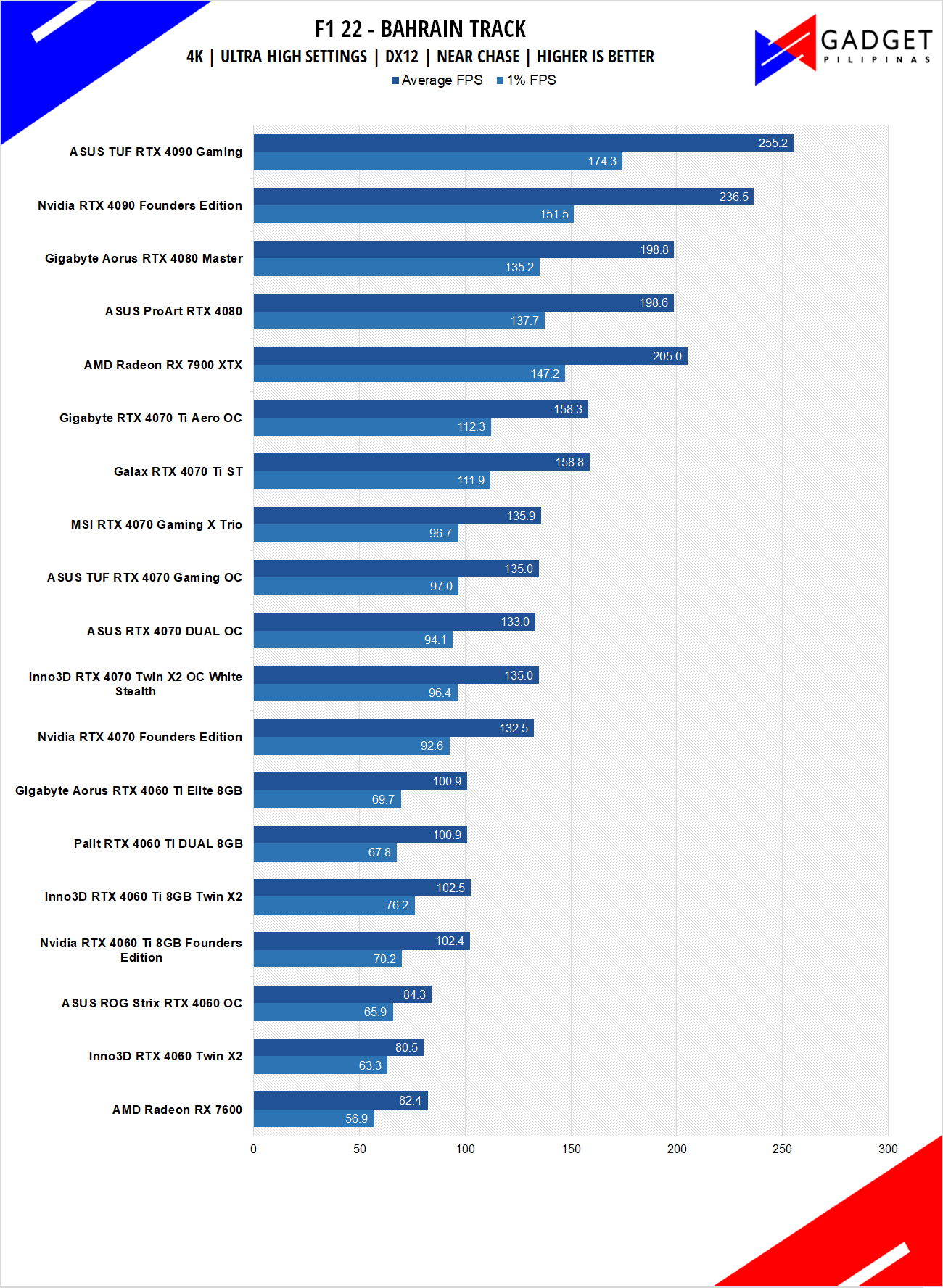
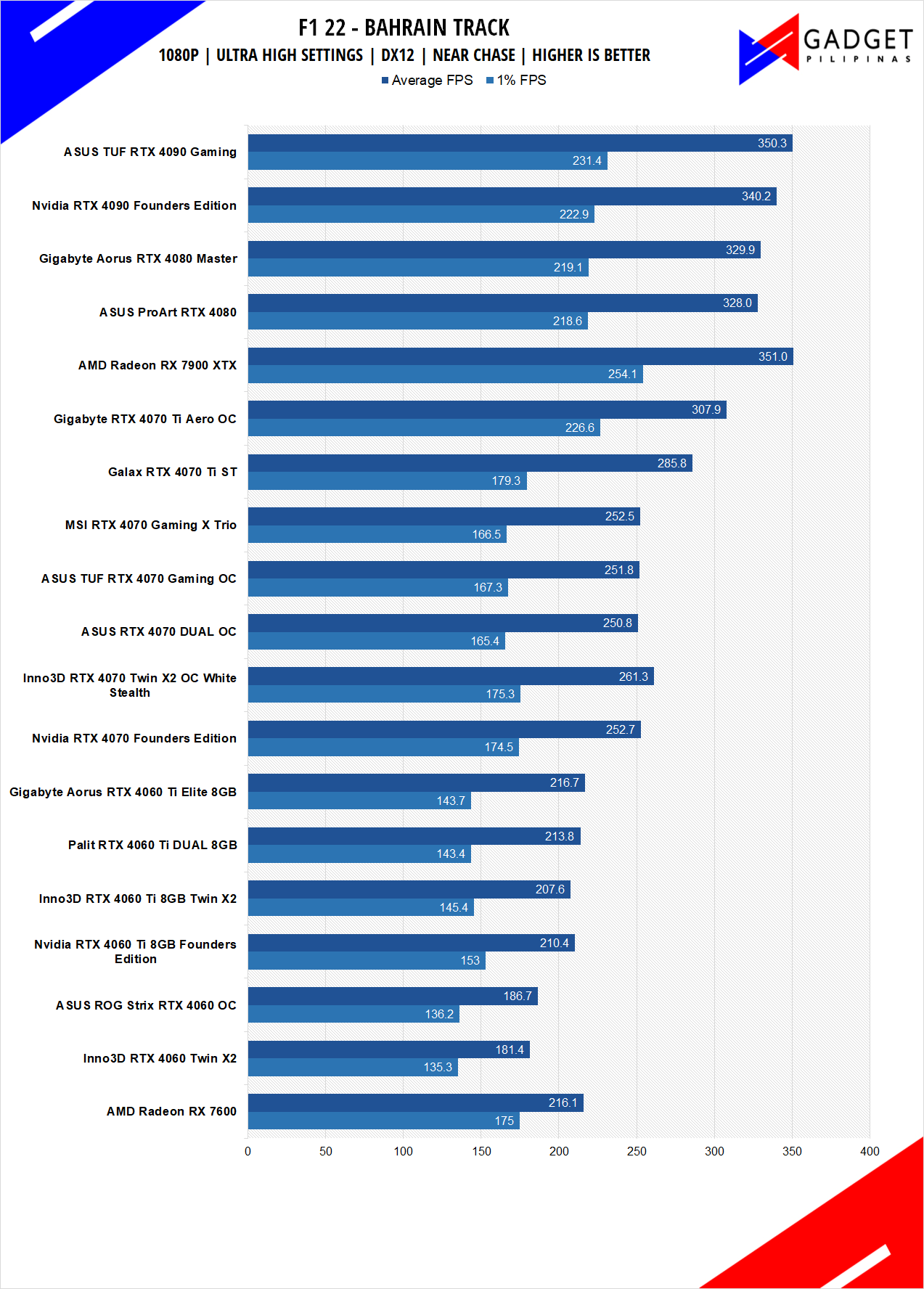
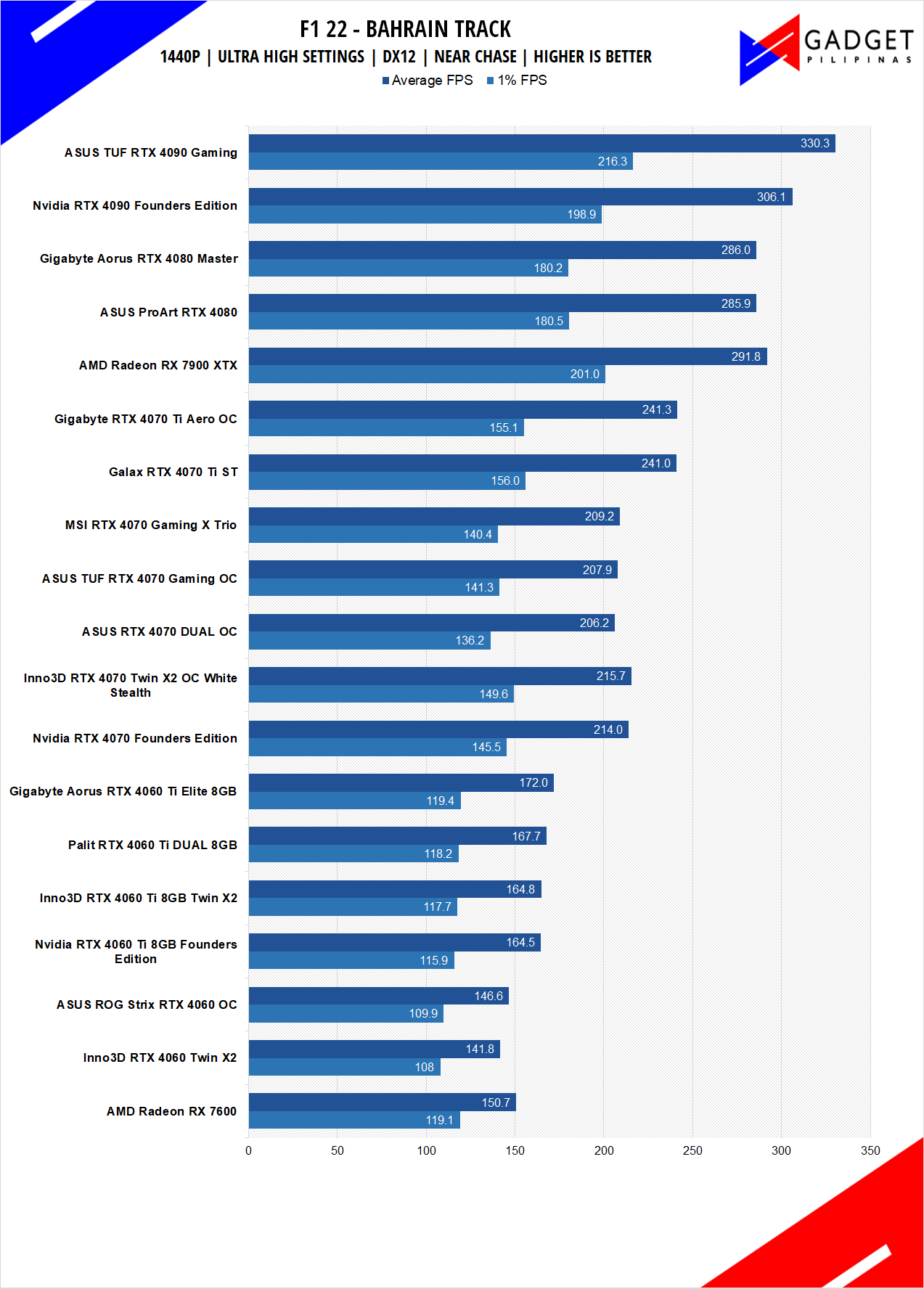
F1 22 is the official video game of the 2022 Formula 1 and Formula 2 championships developed by Codemasters. F1 2022 is the fifteenth installment in the franchise and uses the Ego Engine 4.0. F1 22 is a good representation of racing games thanks to its realistic graphics and fairly demanding spec requirements as well as support for Ray Tracing and DLSS 3.
HORIZON ZERO DAWN
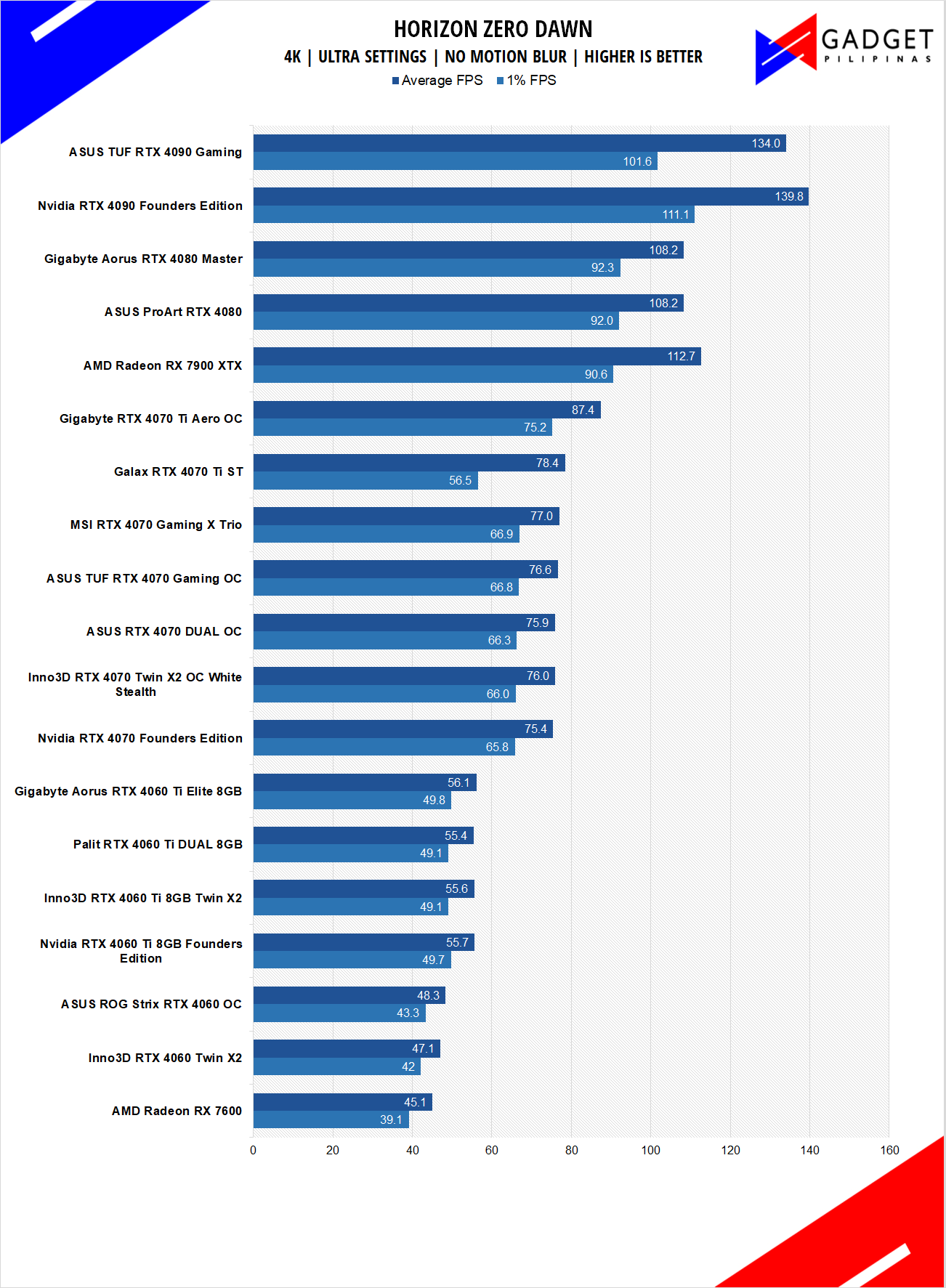
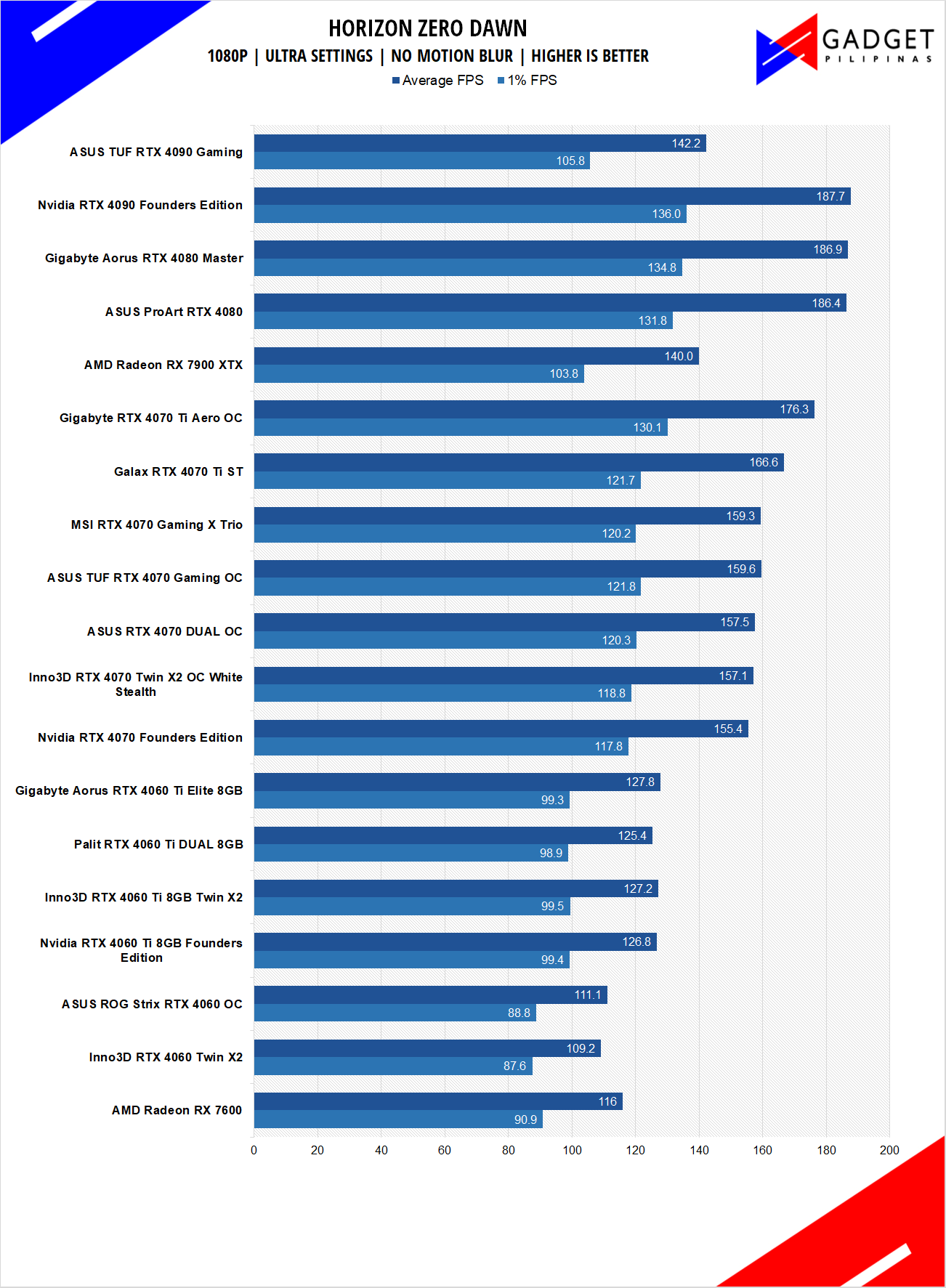
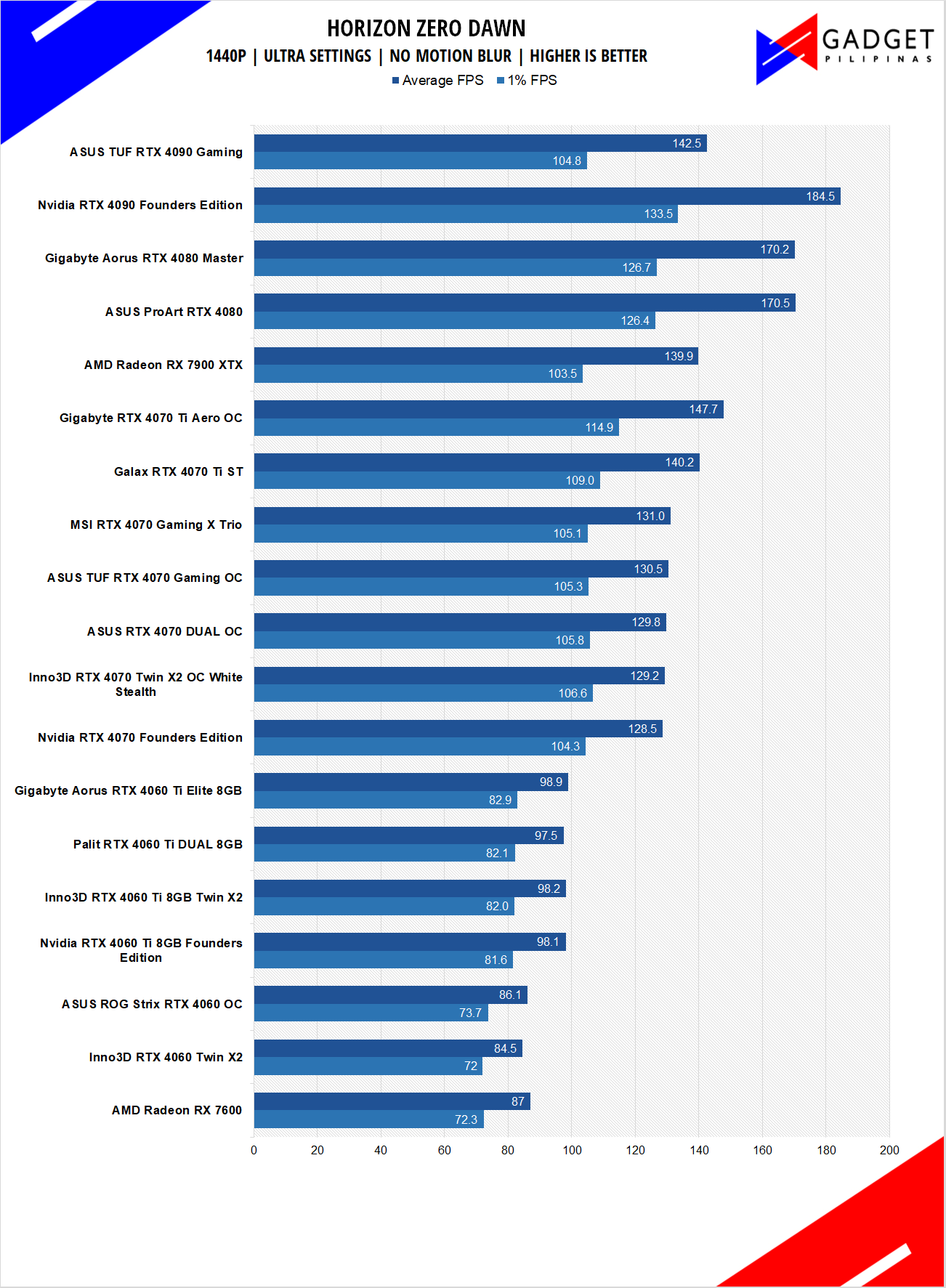
Horizon Zero Dawn is one of the most popular console-port RPG developed by Guerilla Games and published by Sony Interactive Entertainment. Horizon Zero Dawn is a multi-award-winning action RPG, and its popularity resulted in an exclusive Complete Edition game bundle on Steam.
Inno3D RTX 4070 Twin X2 OC White Stealth Temps and Power Draw
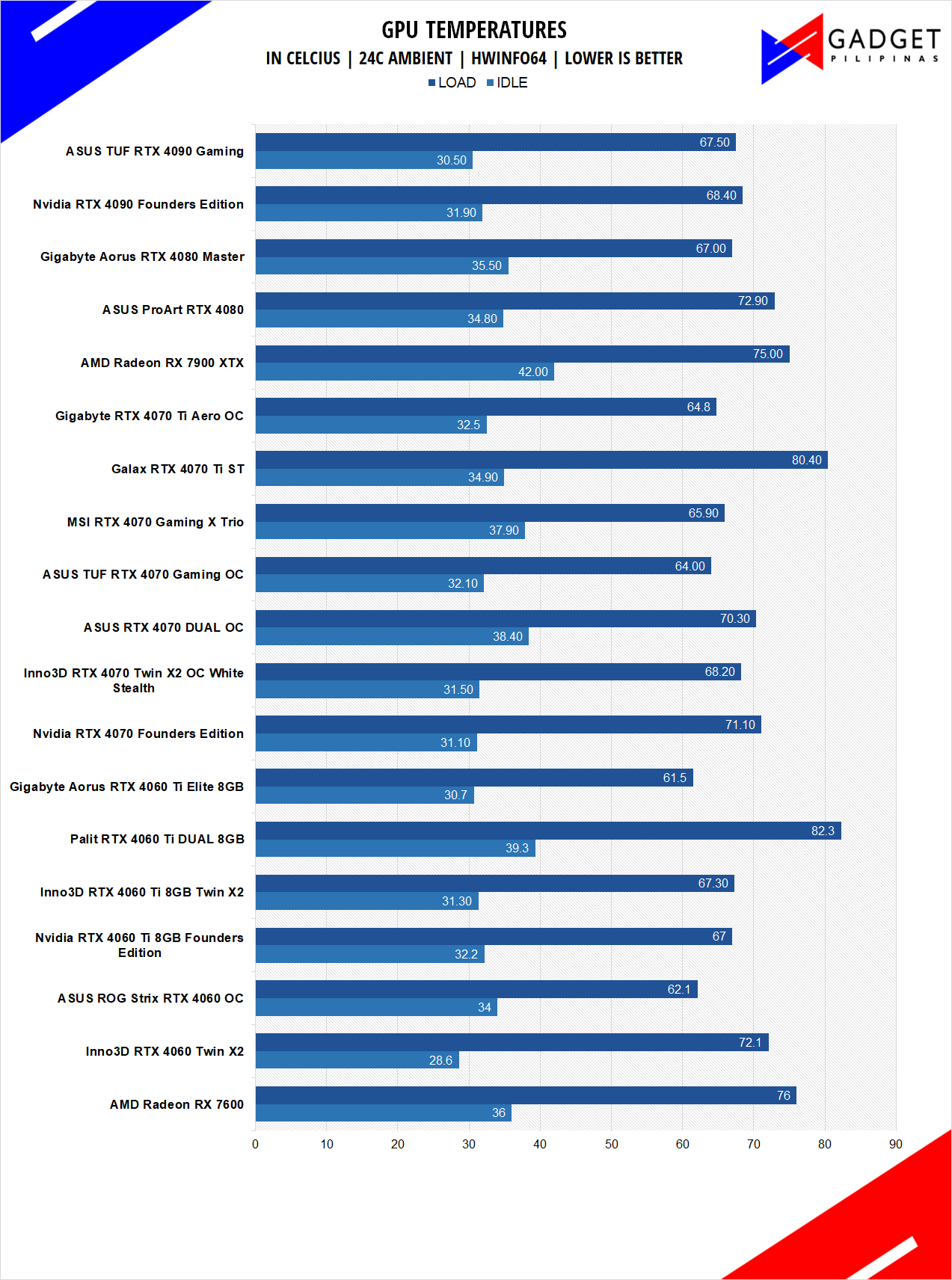
Despite the smaller backplate cutout the Inno3D RTX 4070 Twin X2 OC White Stealth managed to do pretty well throughout our benchmark run as we were only able to record a maximum temperature of 68.20°C. It’s 0.9°C higher than our RTX 4060 Ti Twin X2 non-OC card but the former is a higher-tier GPU that consumes more power and thus generates more heat. However, it’s worth noting that we have an open-air testbench and that the GPU’s temperatures might be higher once installed with cases, especially in restricted airflow scenarios.
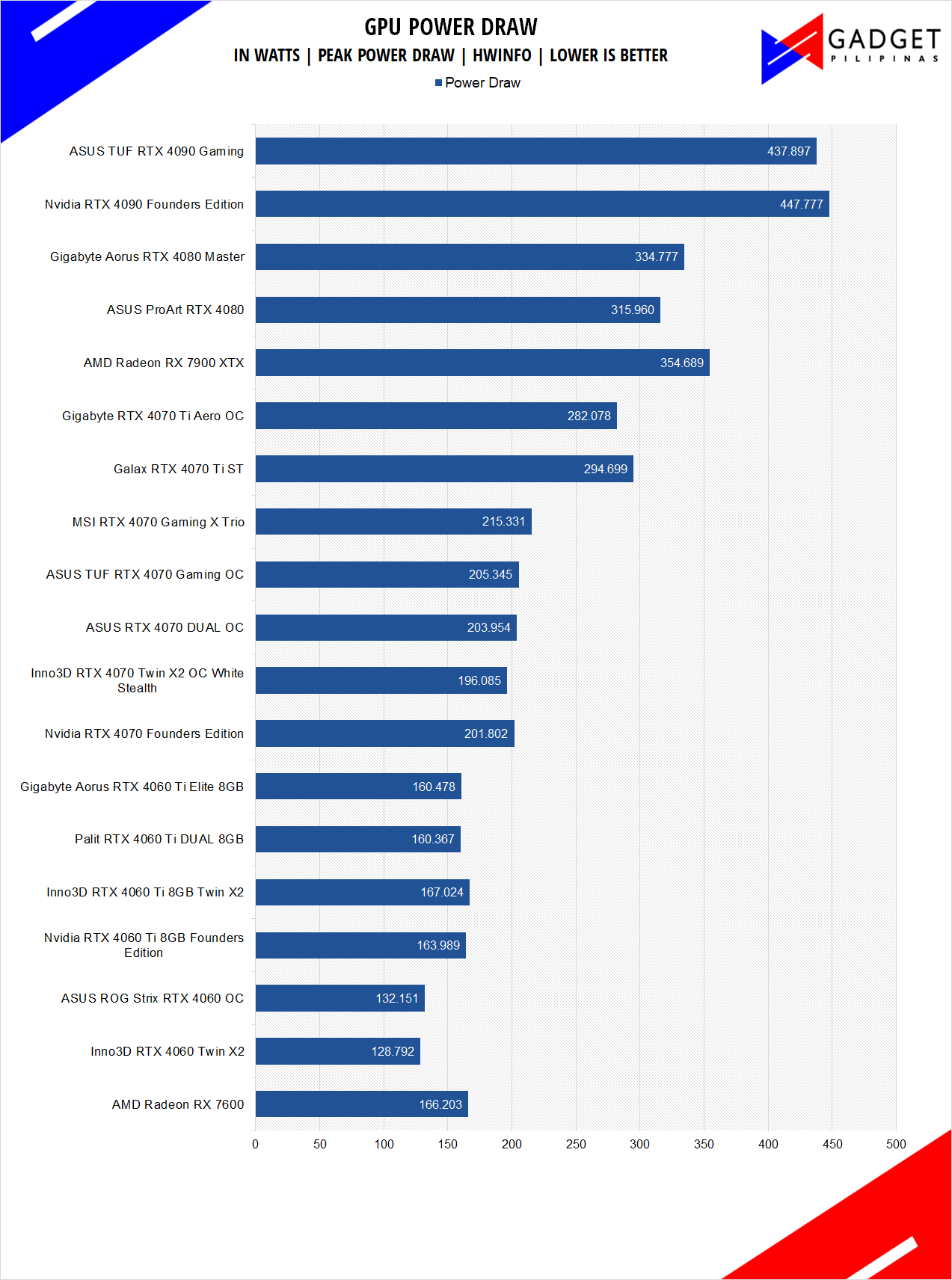
Power consumption is well within spec and in line with other RTX 4070 cards with the Twin X2 OC White Stealth model consuming less at only 195.085 watts.
Performance Summary and Conclusion
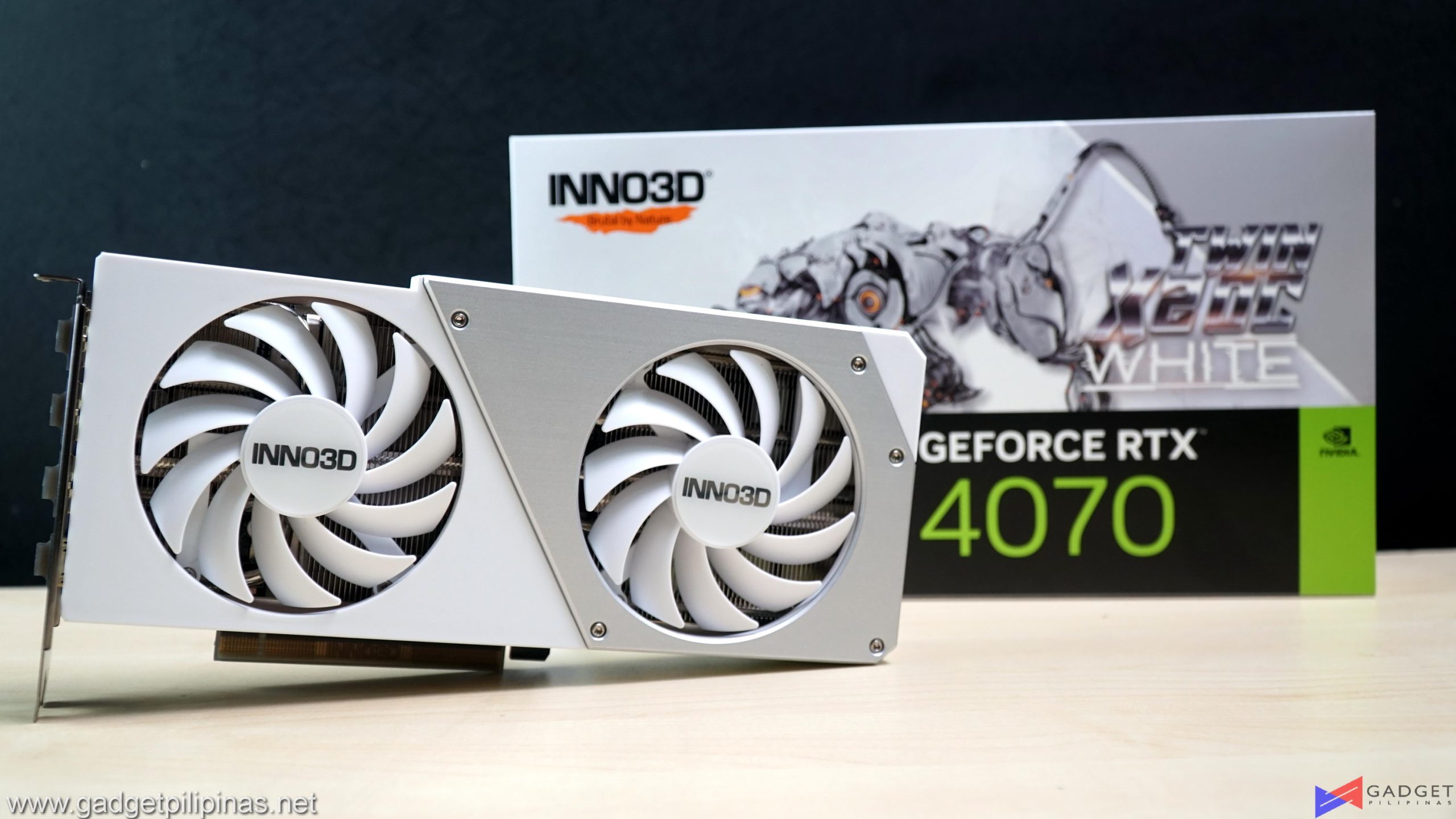
The Inno3D RTX 4070 Twin X2 OC White Stealth solves a problem that concerns a small number of people albeit in a not-so-perfect implementation. It does successfully hide the power connector resulting in a cleaner-looking side profile but the protruding cable at the back part of the GPU will surely irk some users – not to mention the extra step of unscrewing the cover plate should the need to remove the GPU or the cable arises. That said, these nitpicks don’t really affect performance however the reduced backplate cutout did raise a concern regarding temperatures and subsequently performance. Despite reduced cutout area, the temperatures are heavily impacted as the GPU still performs at par with other RTX 4070 OC models.
Overall, Inno3D was able to prove and make a statement that the power connector placement whether it be the 12VHPWR connector or the traditional PCI-E connector is due for a change to achieve a much cleaner design. That said, there are still challenges especially the part where these changes shouldn’t negatively impact performance and Inno3D managed to get away with their implementation at the cost of not being as tidy as expected. That said, this placement change, while not relevant in terms of performance, certainly holds a market, especially for those who are aiming for a clean, themed build or even those who like to achieve a certain look or PC mod.
The Stealth implementation by Inno3D is not perfect by any means but it’s a step in the right direction as they start the trend of cleaner GPUs. It’s definitely a design choice that more brands should follow. So, if you want a slightly unique look to your GPU and overall build without sacrificing performance albeit doing extra steps in both installation and removal, then the Inno3D RTX 4070 Twin X2 OC White Stealth’s unique implementation is surely something you should consider; and that other brands

Grant is a Financial Management graduate from UST. His passion for gadgets and tech crossed him over in the industry where he could apply his knowledge as an enthusiast and in-depth analytic skills as a Finance Major. His passion allows him to earn at the same time help Gadget Pilipinas' readers in making smart, value-based decisions and purchases with his reviews and guides.

